TAXI GALLERY ~ Radio Taxi 87.7 FM
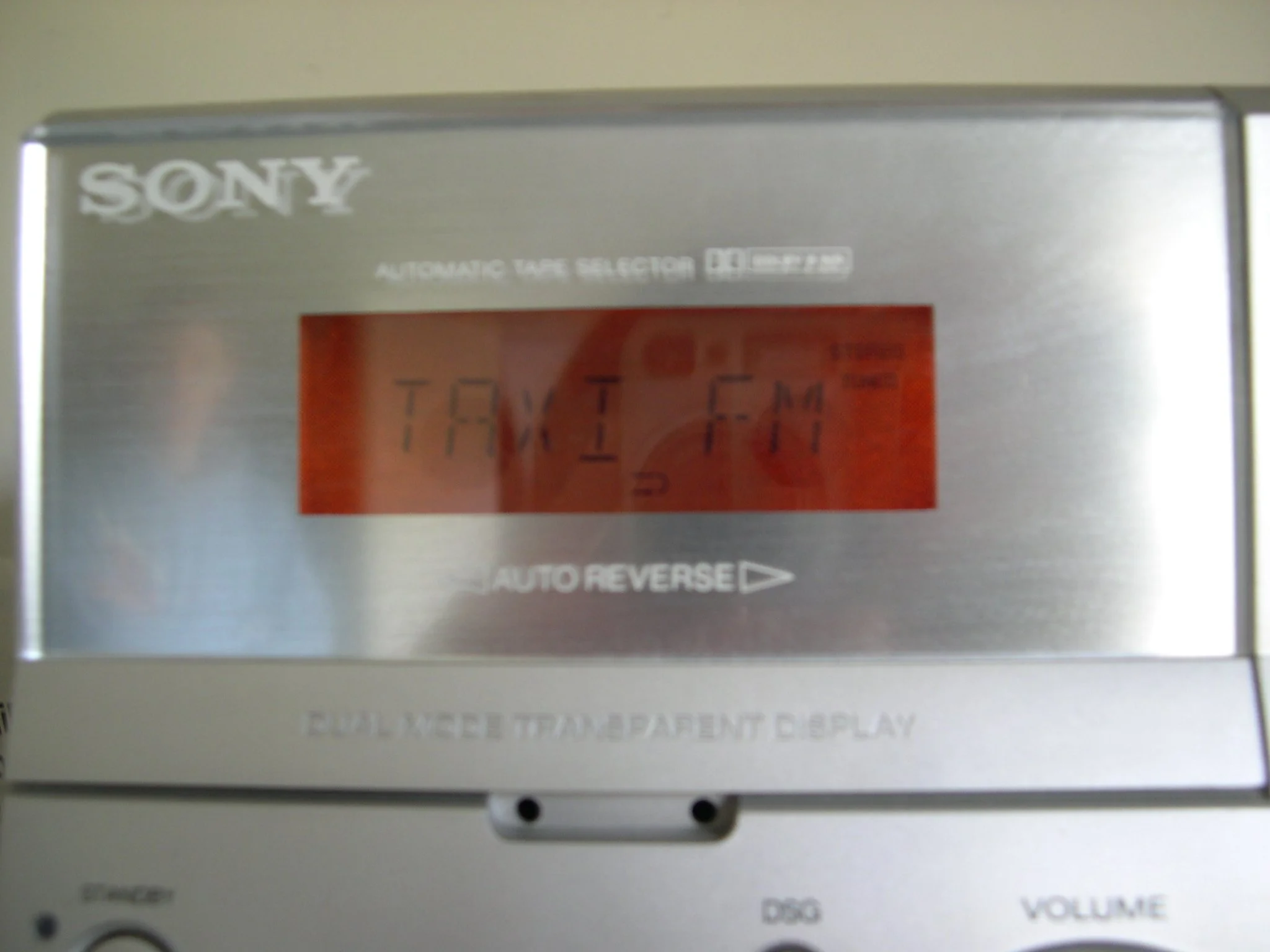
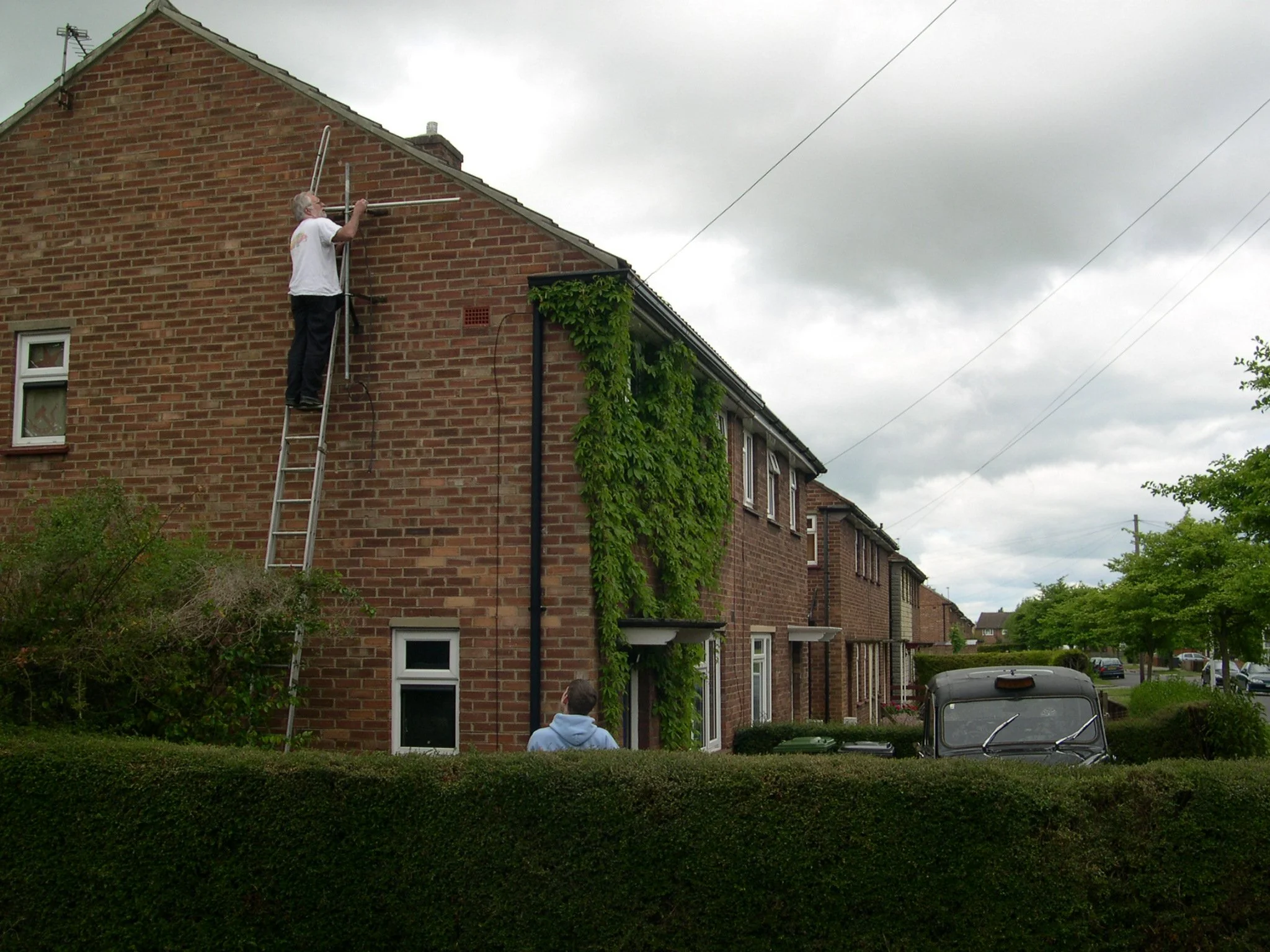
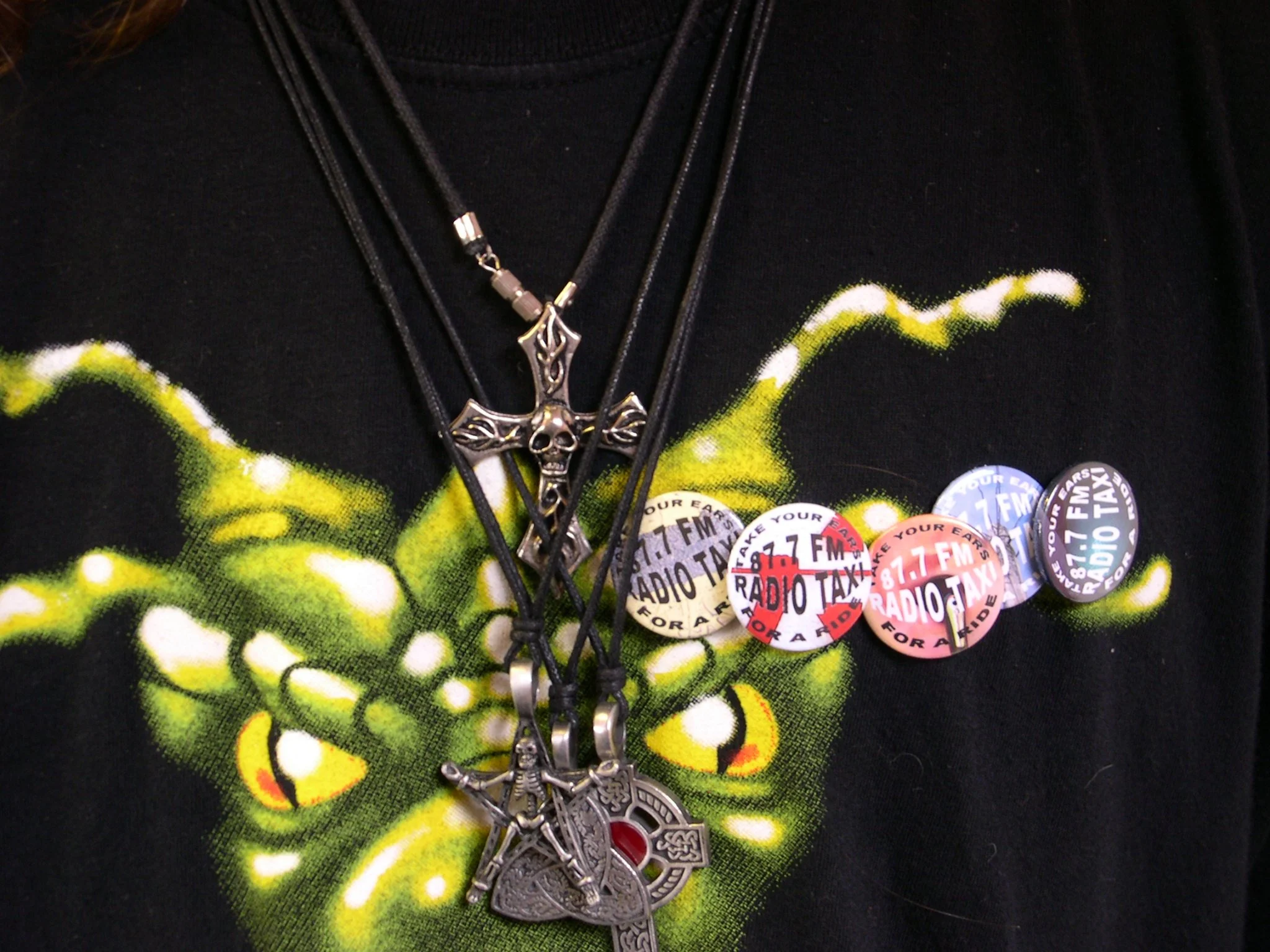
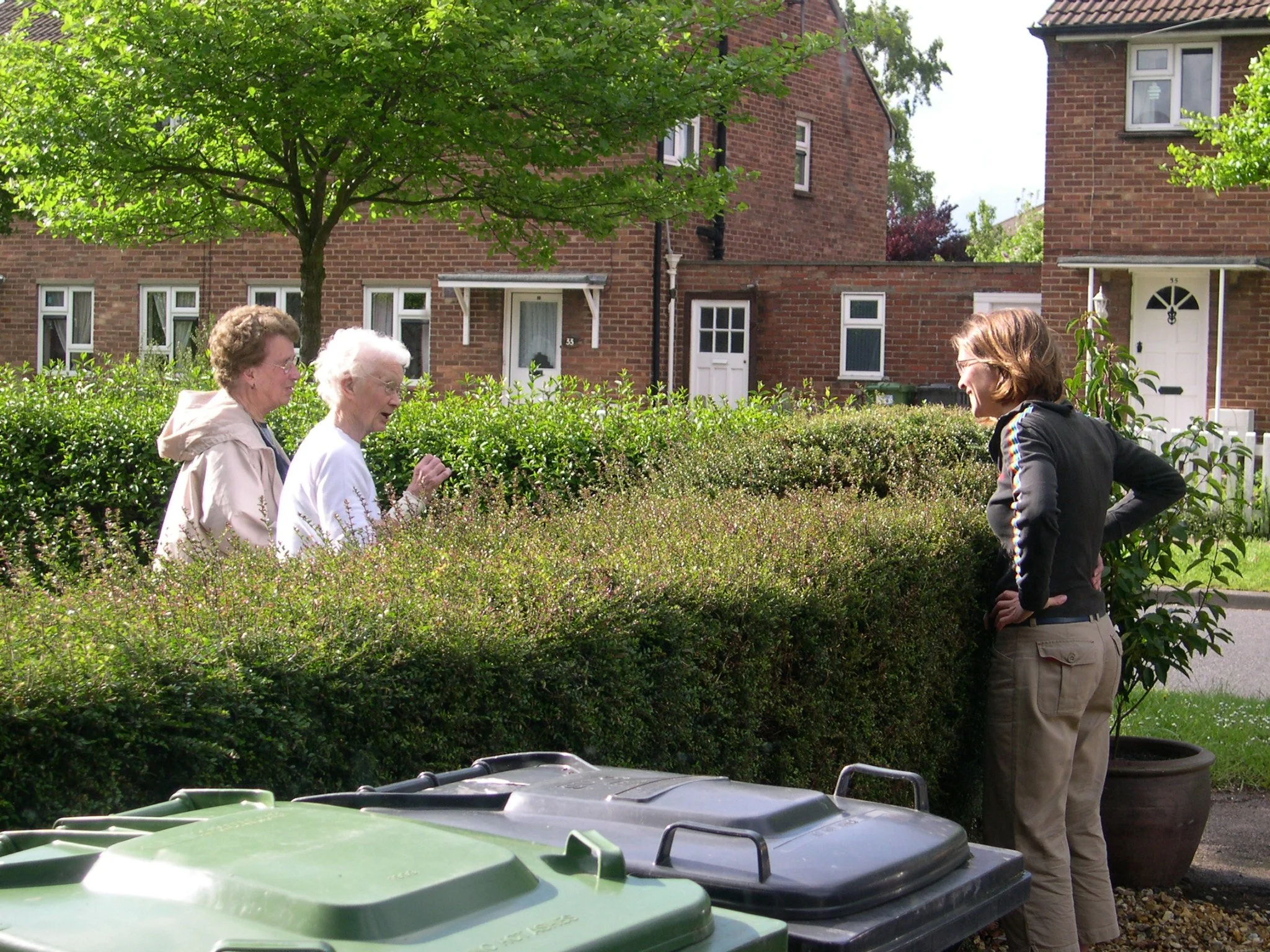
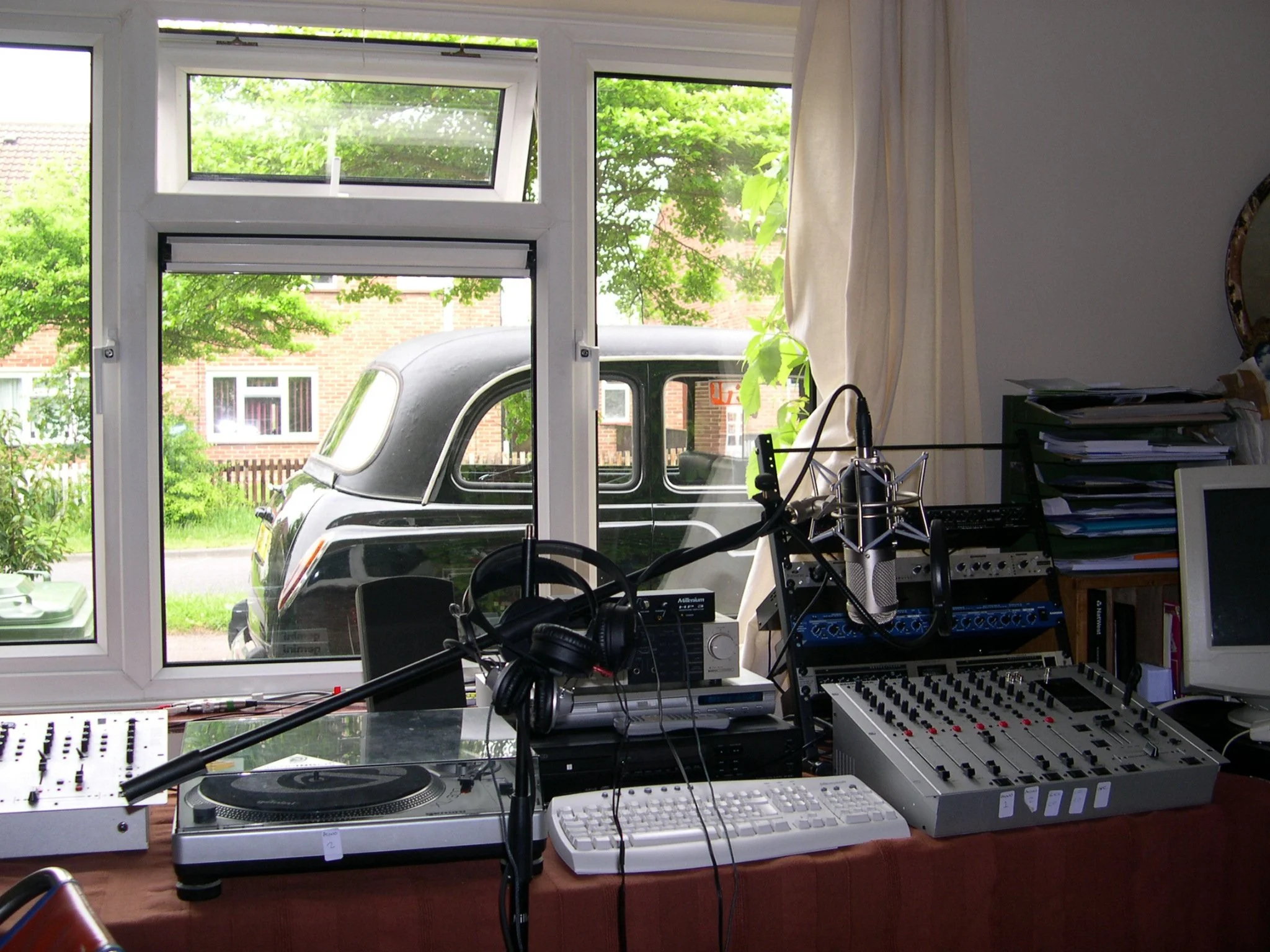
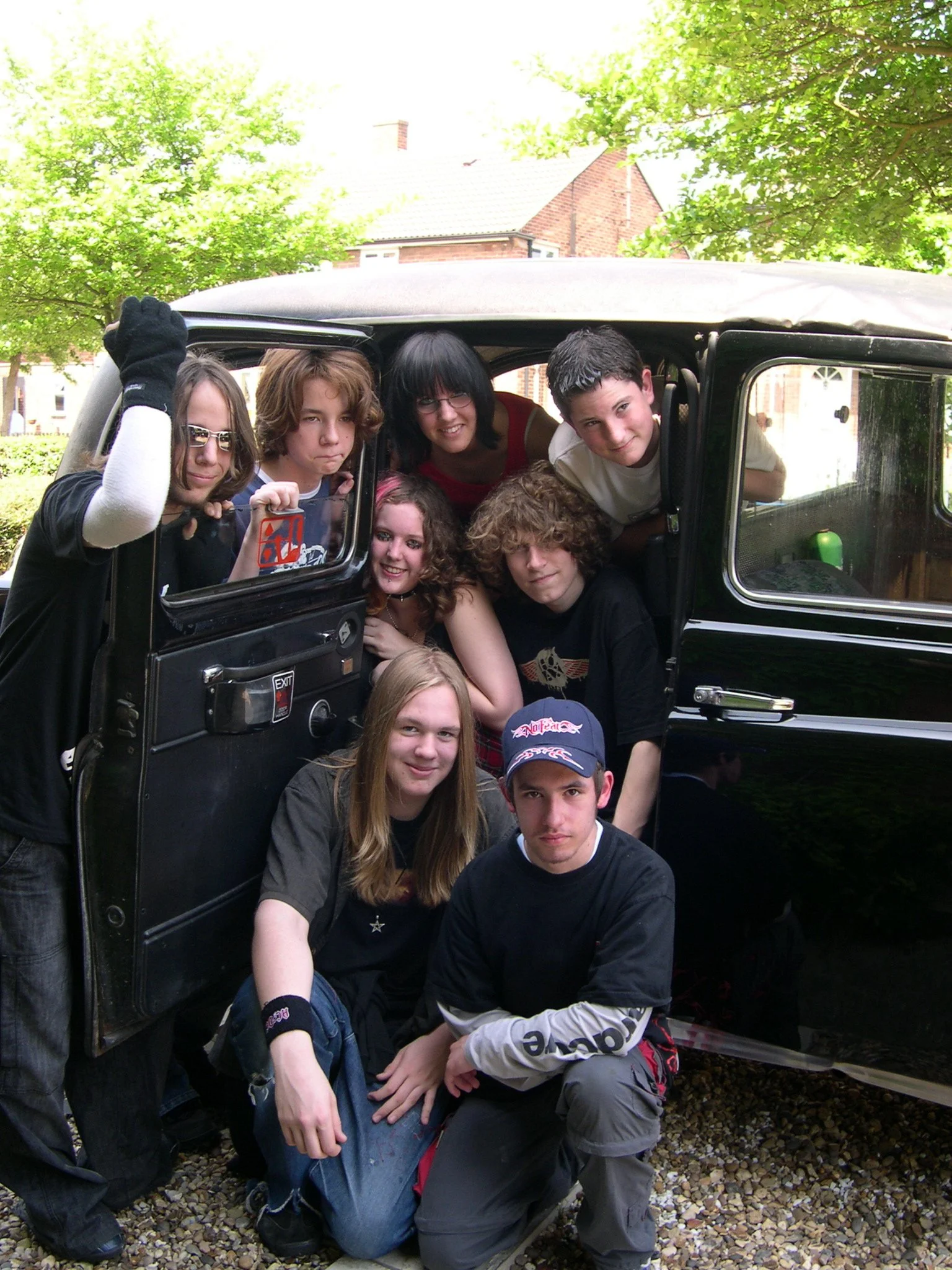
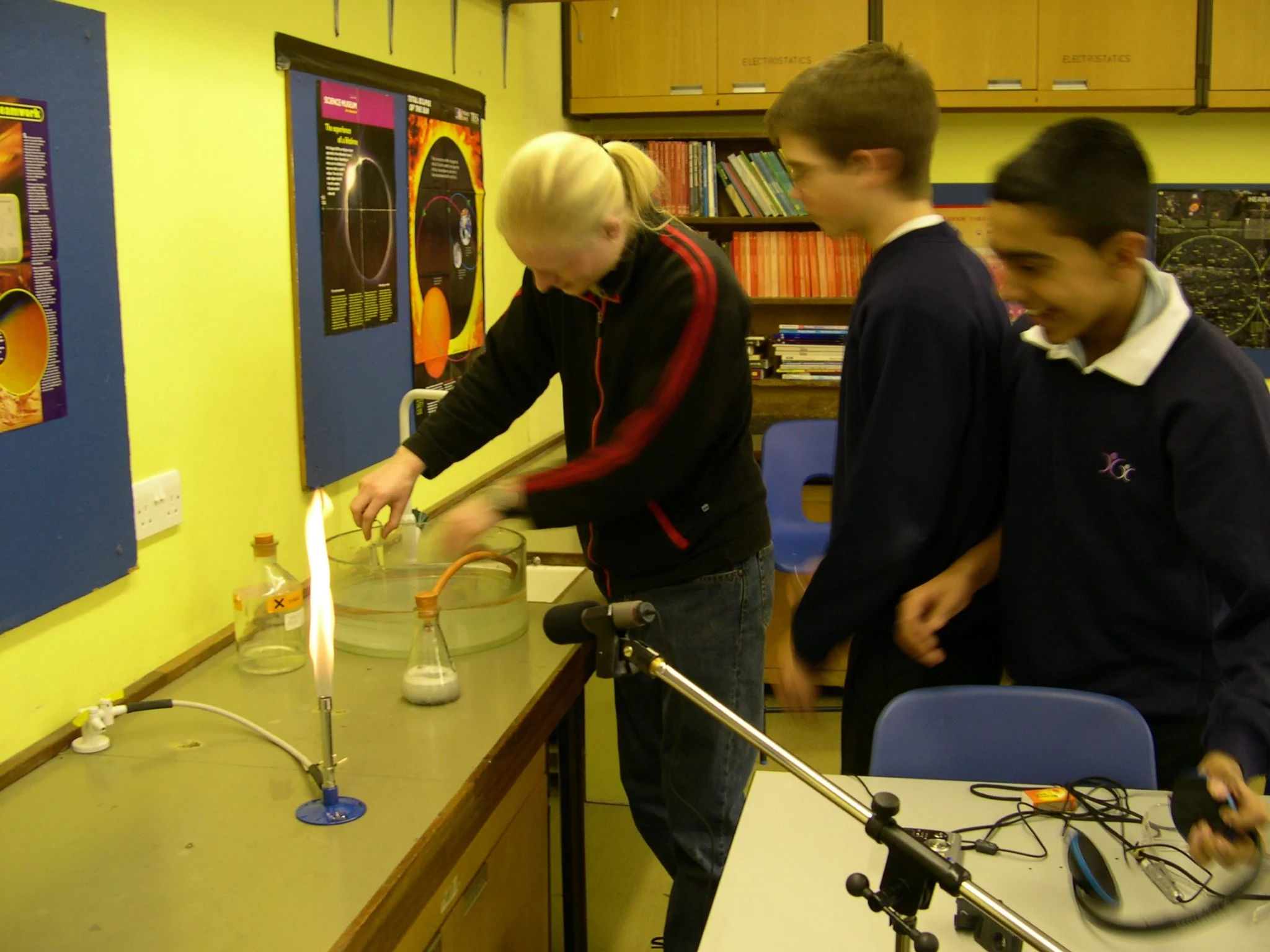
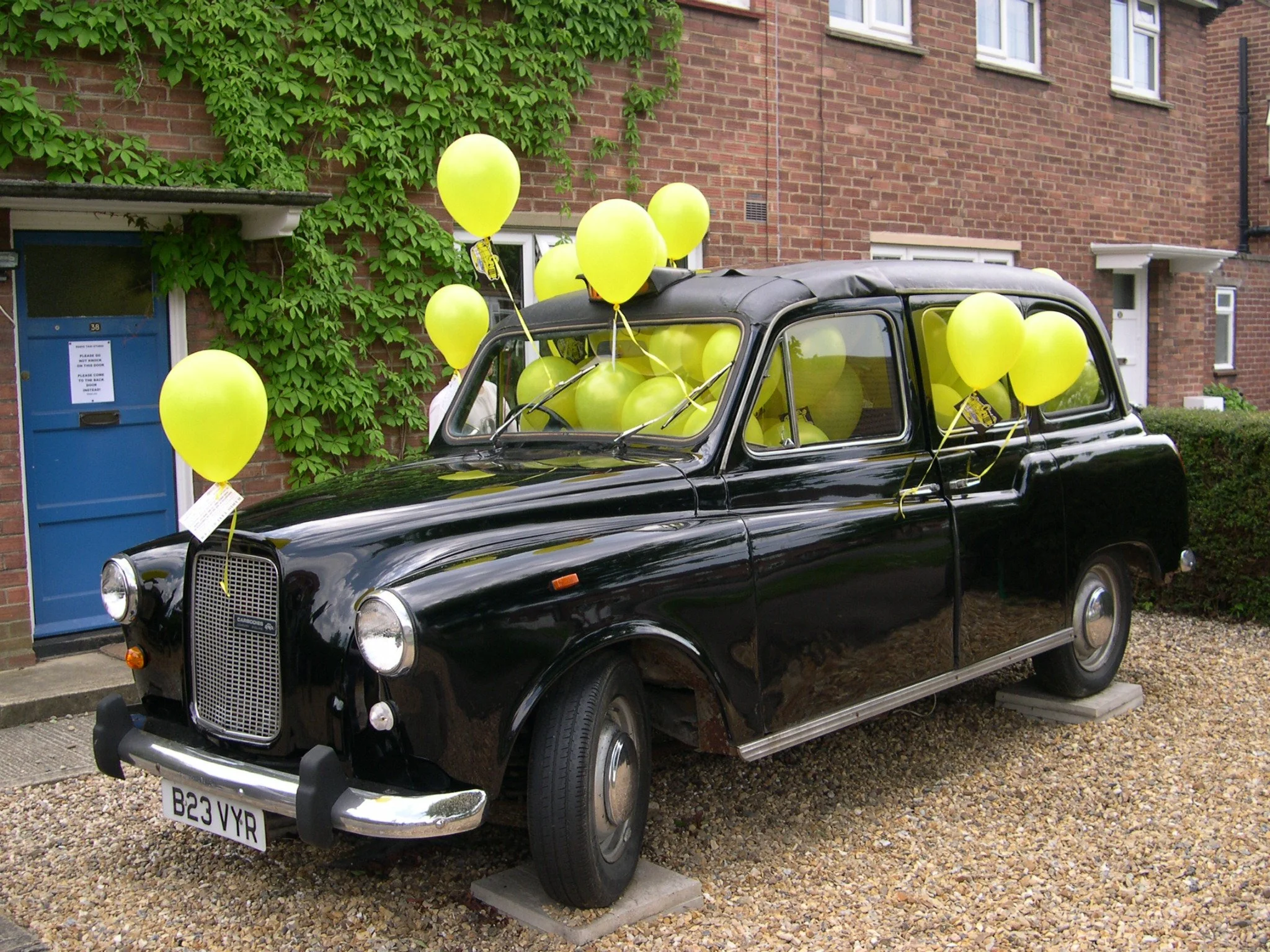
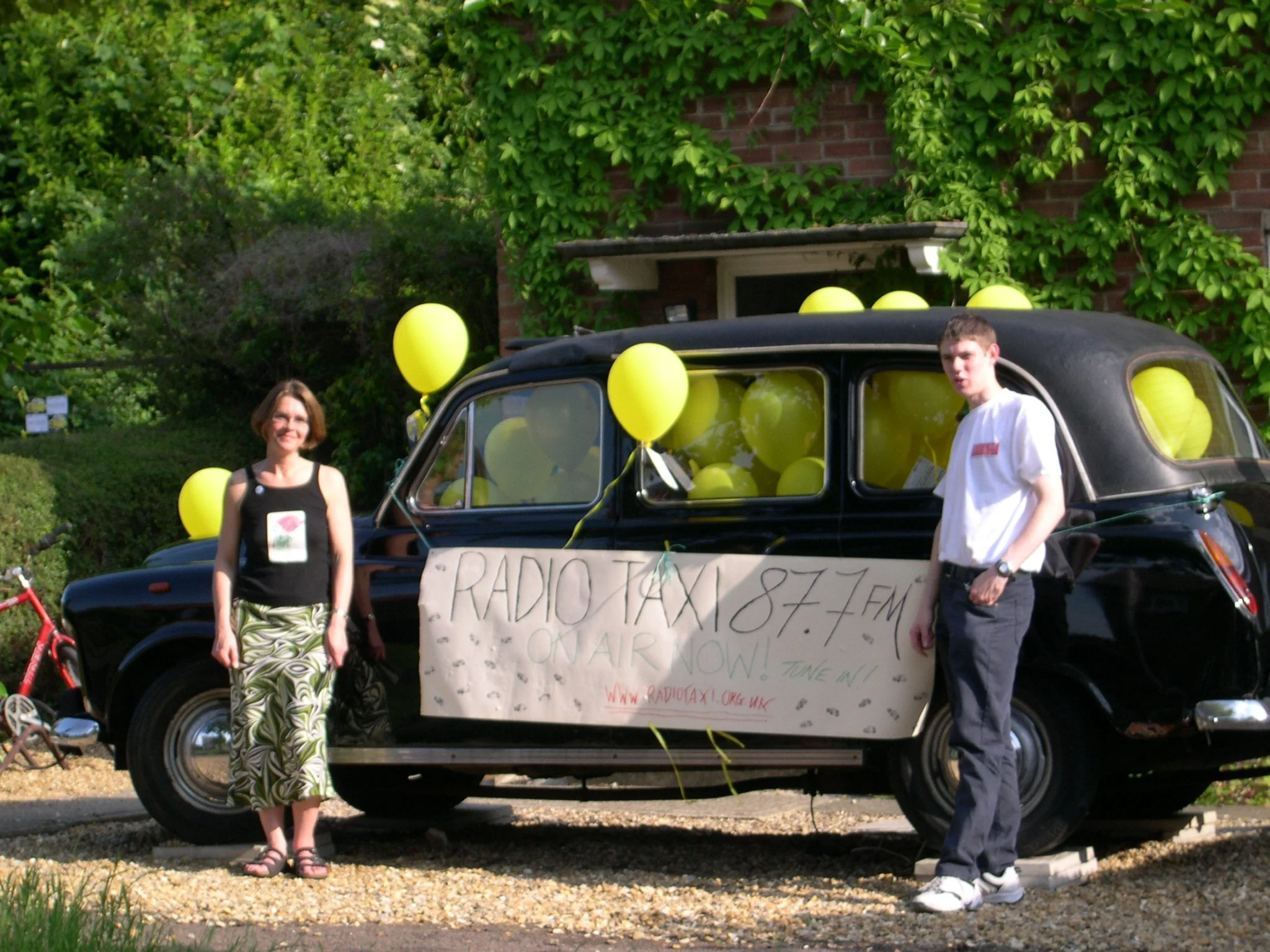
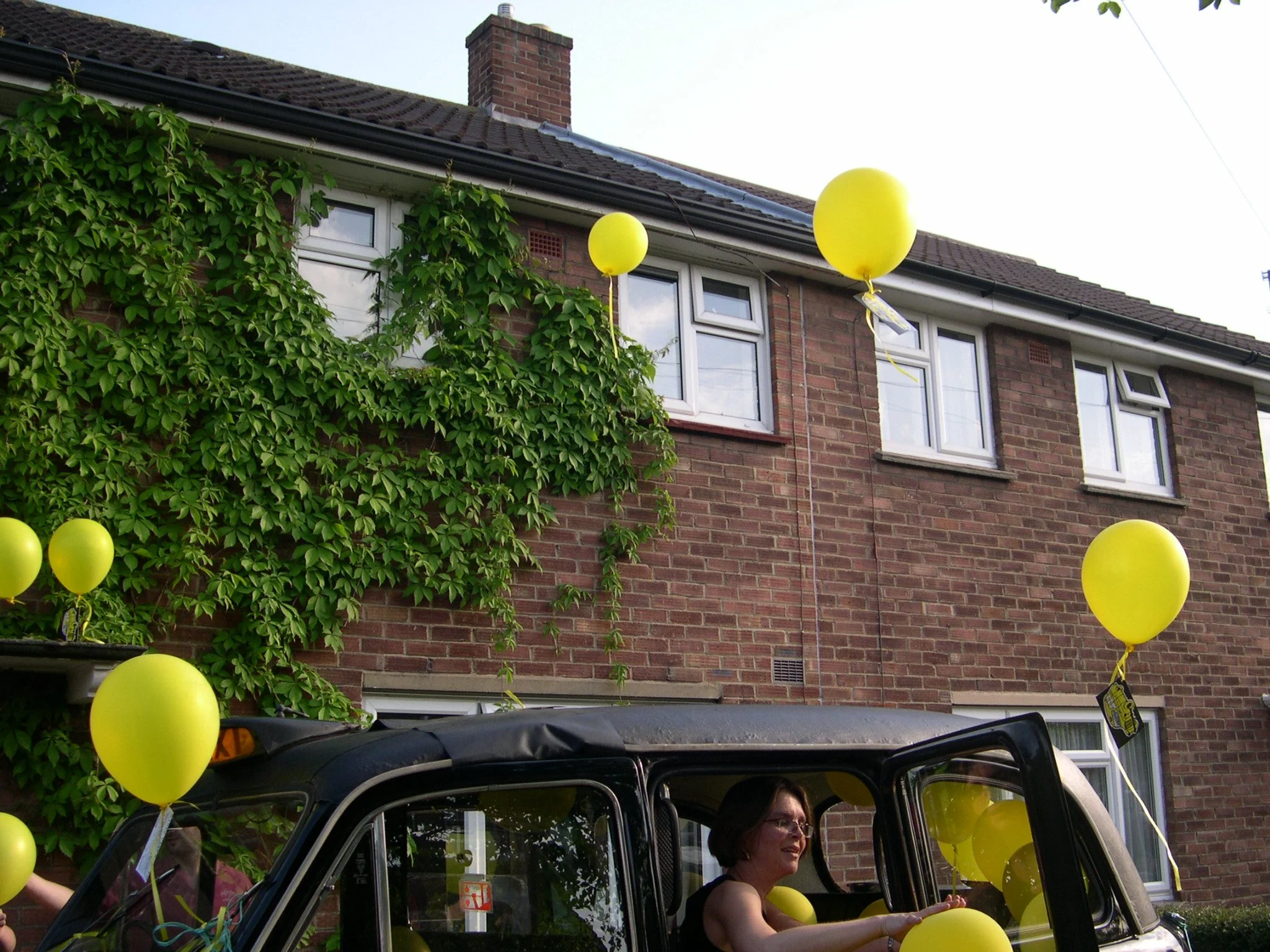
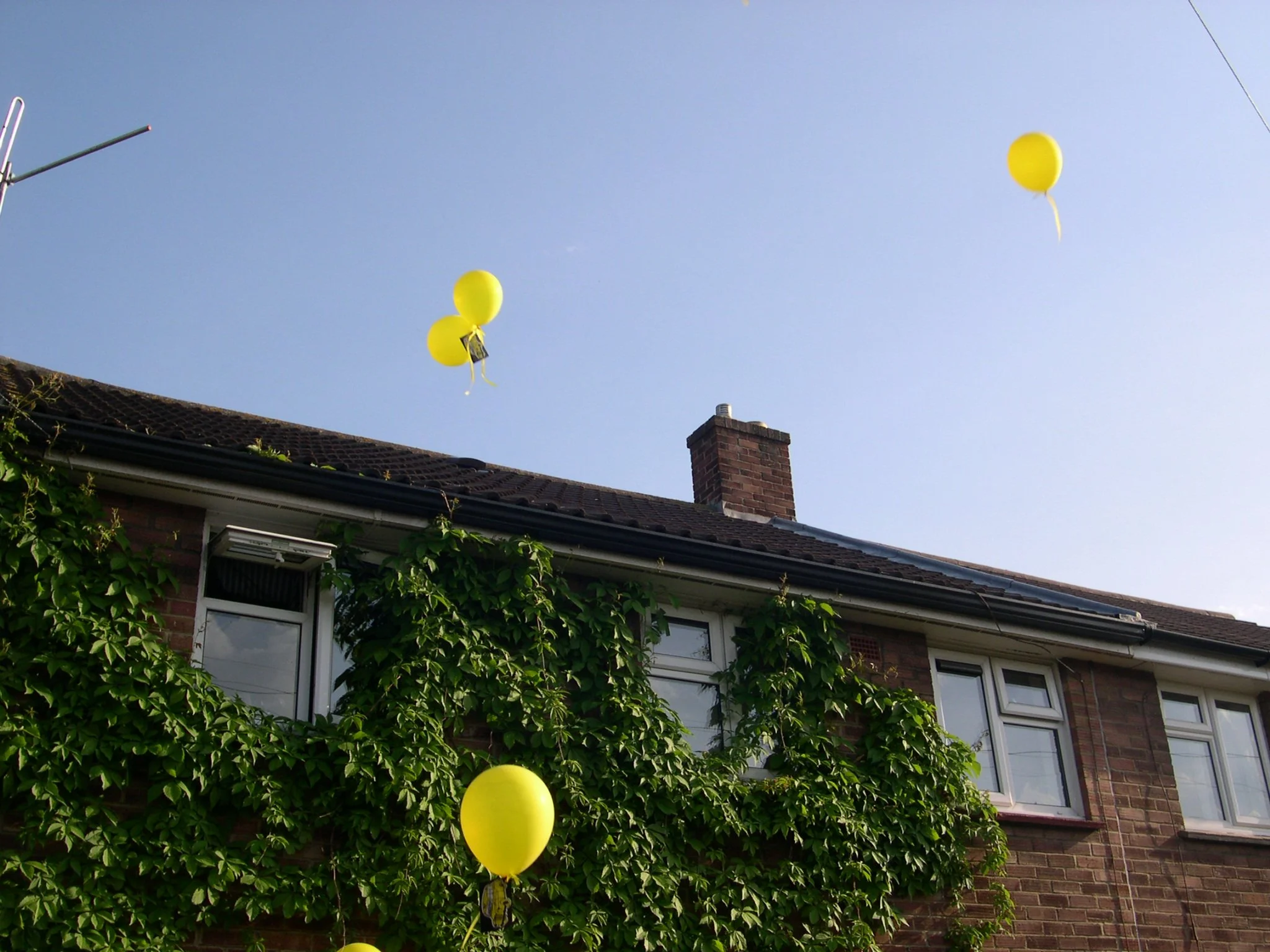
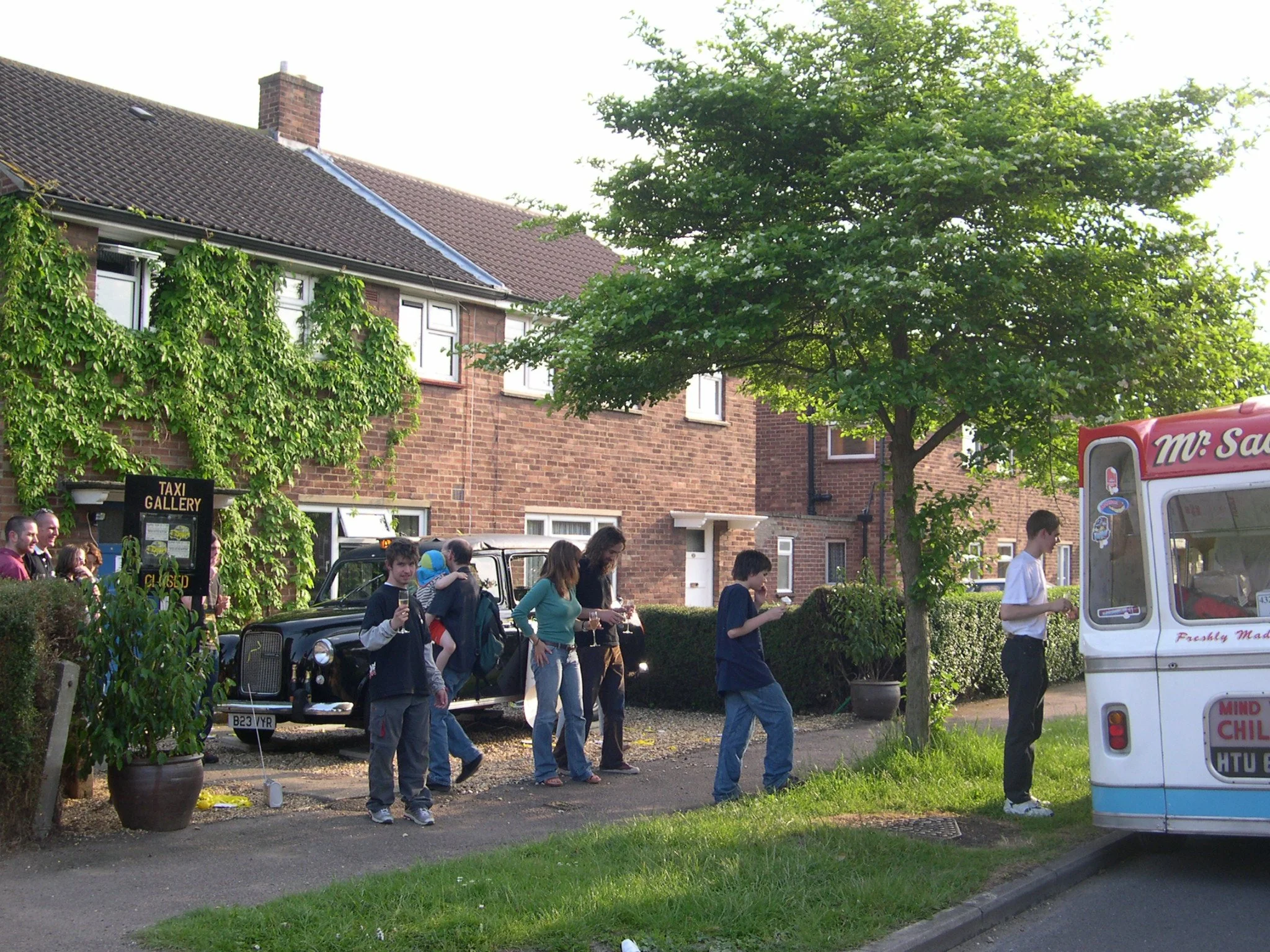
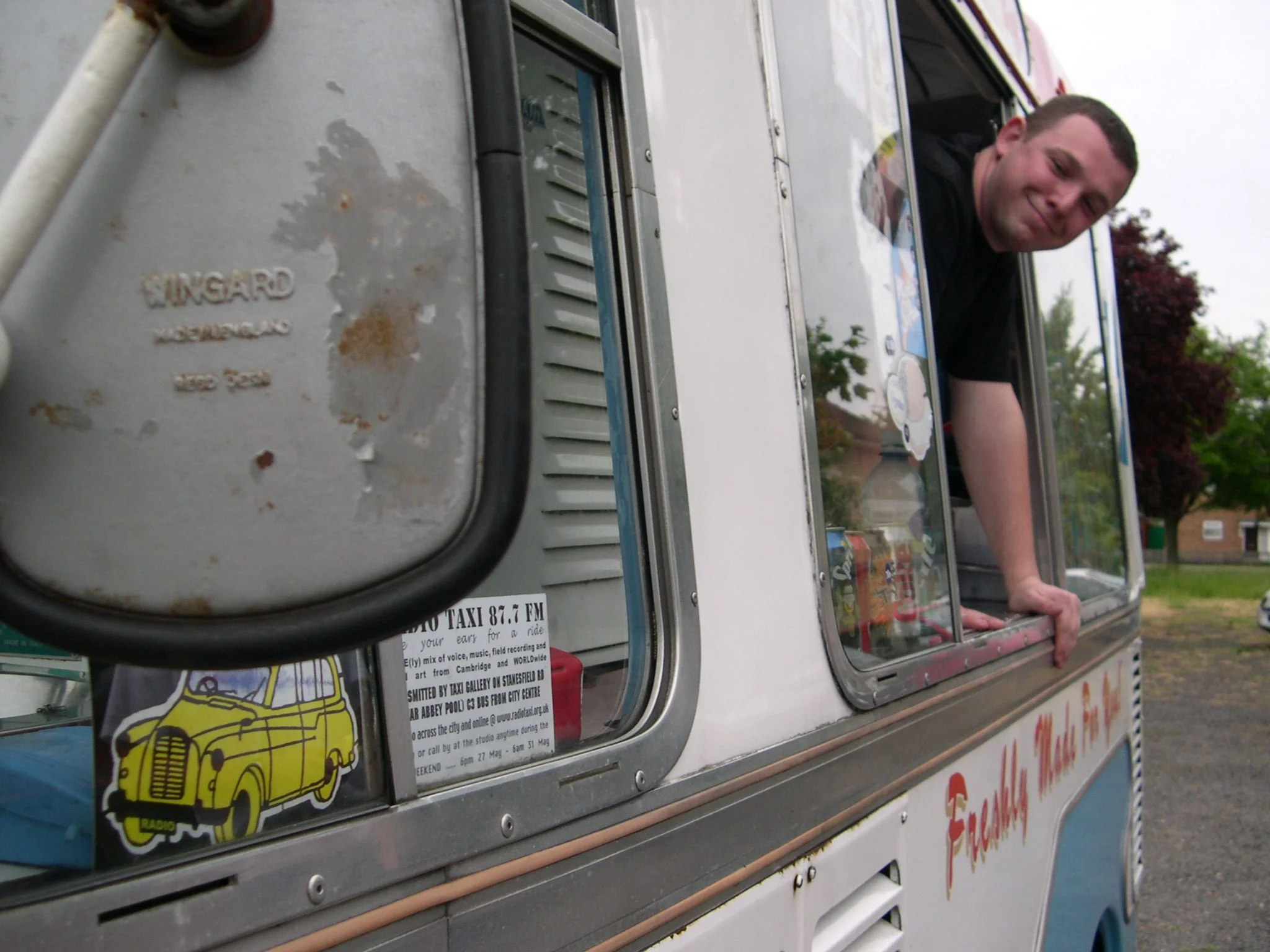
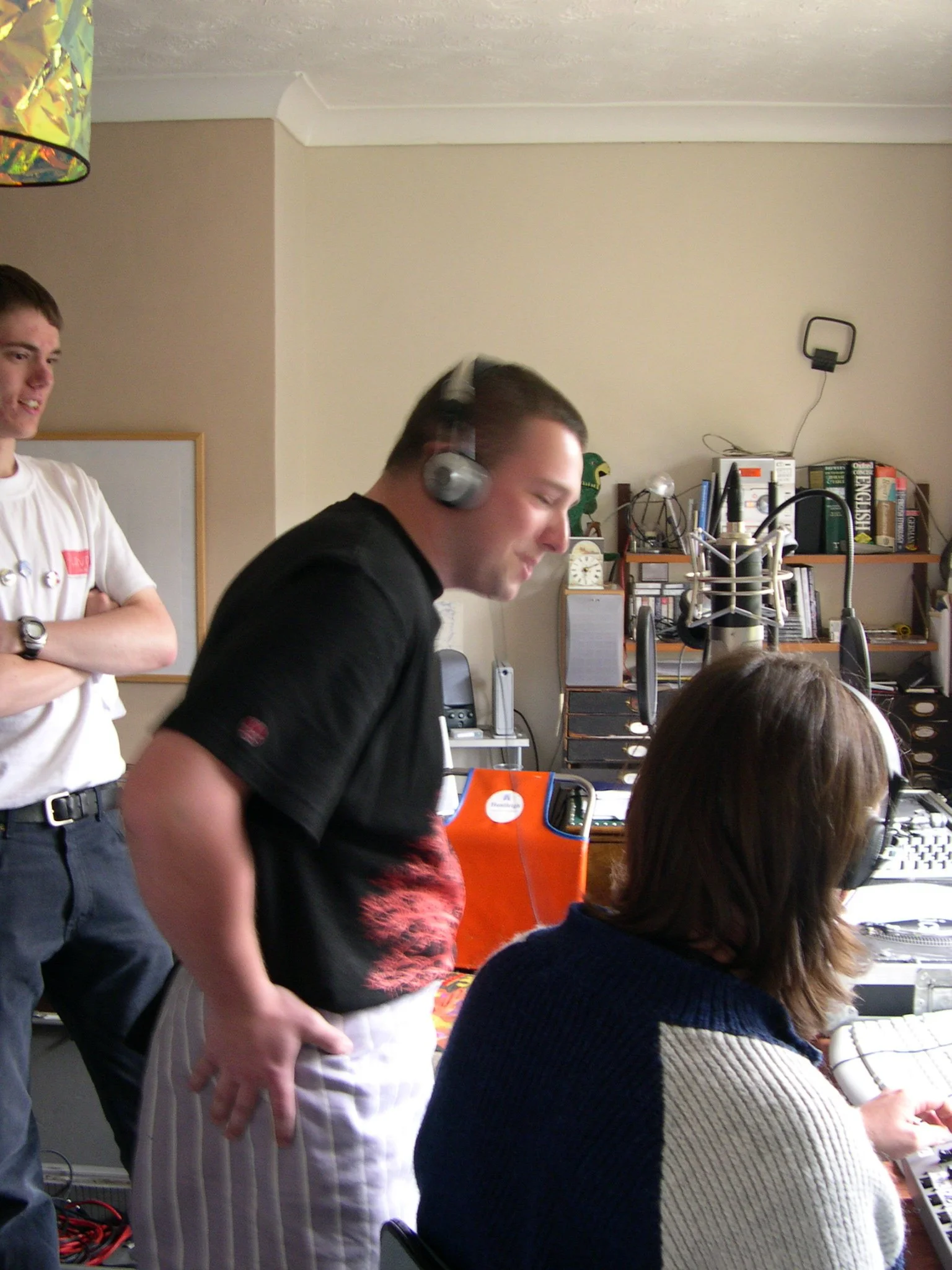
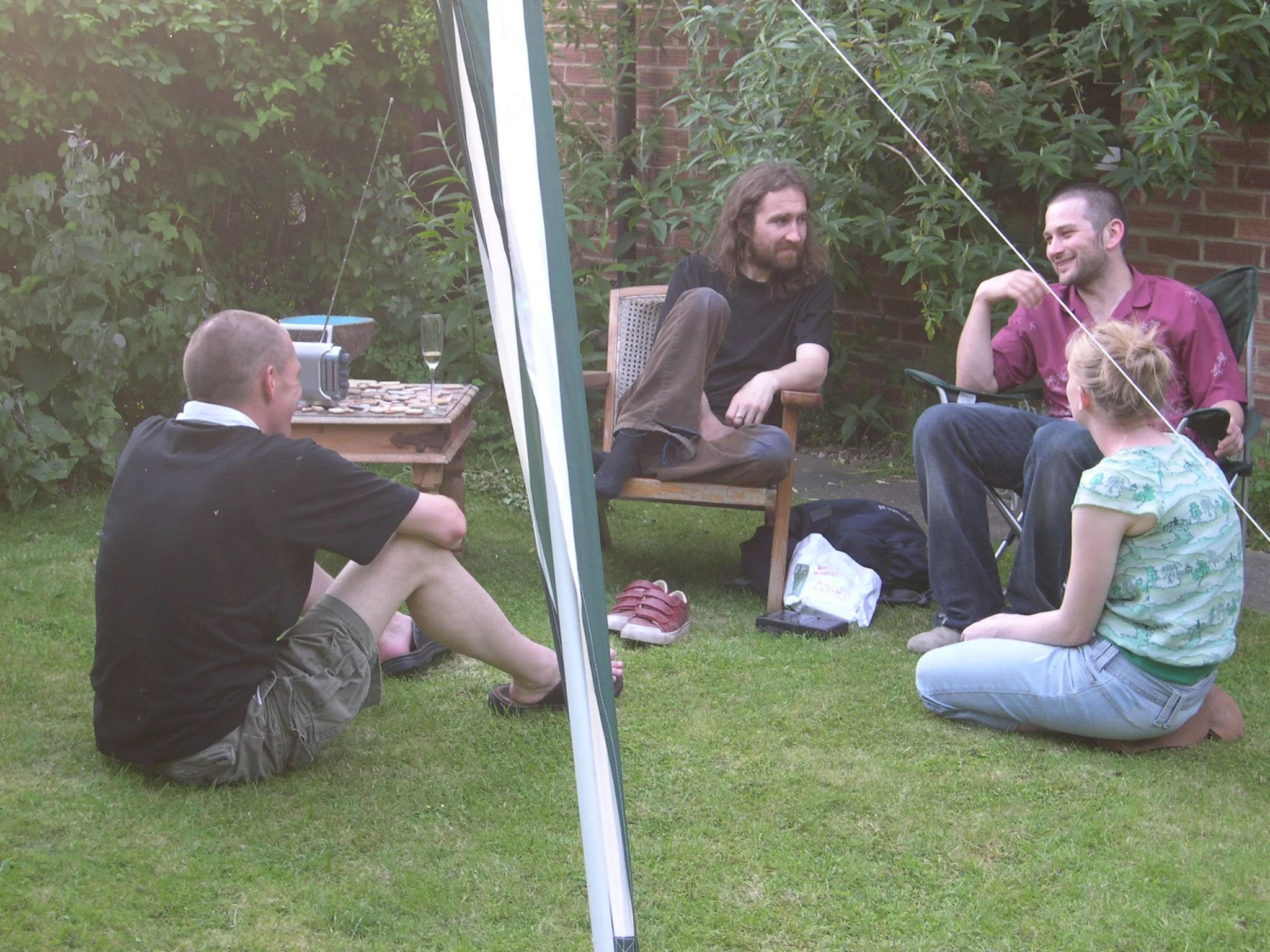

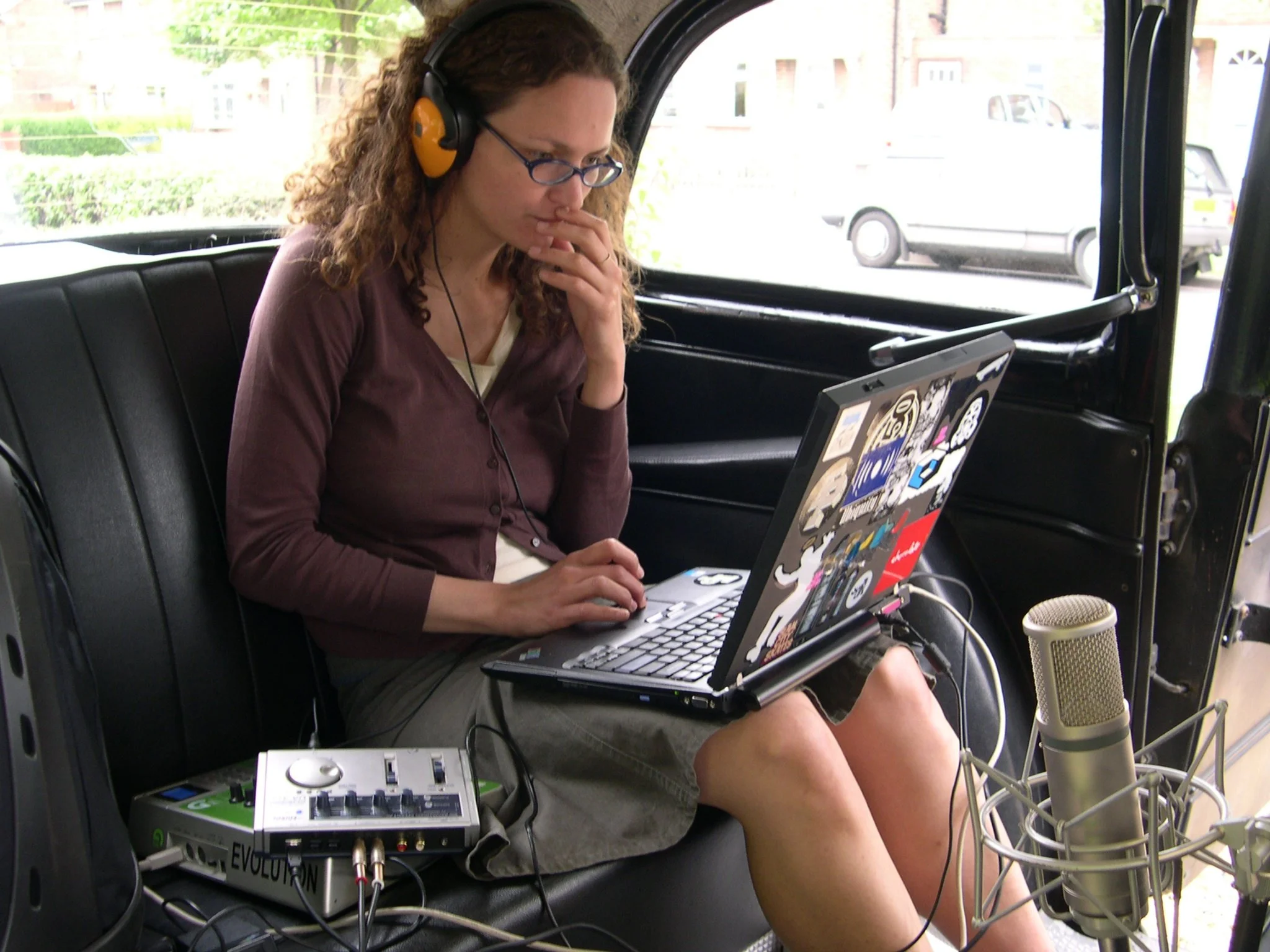
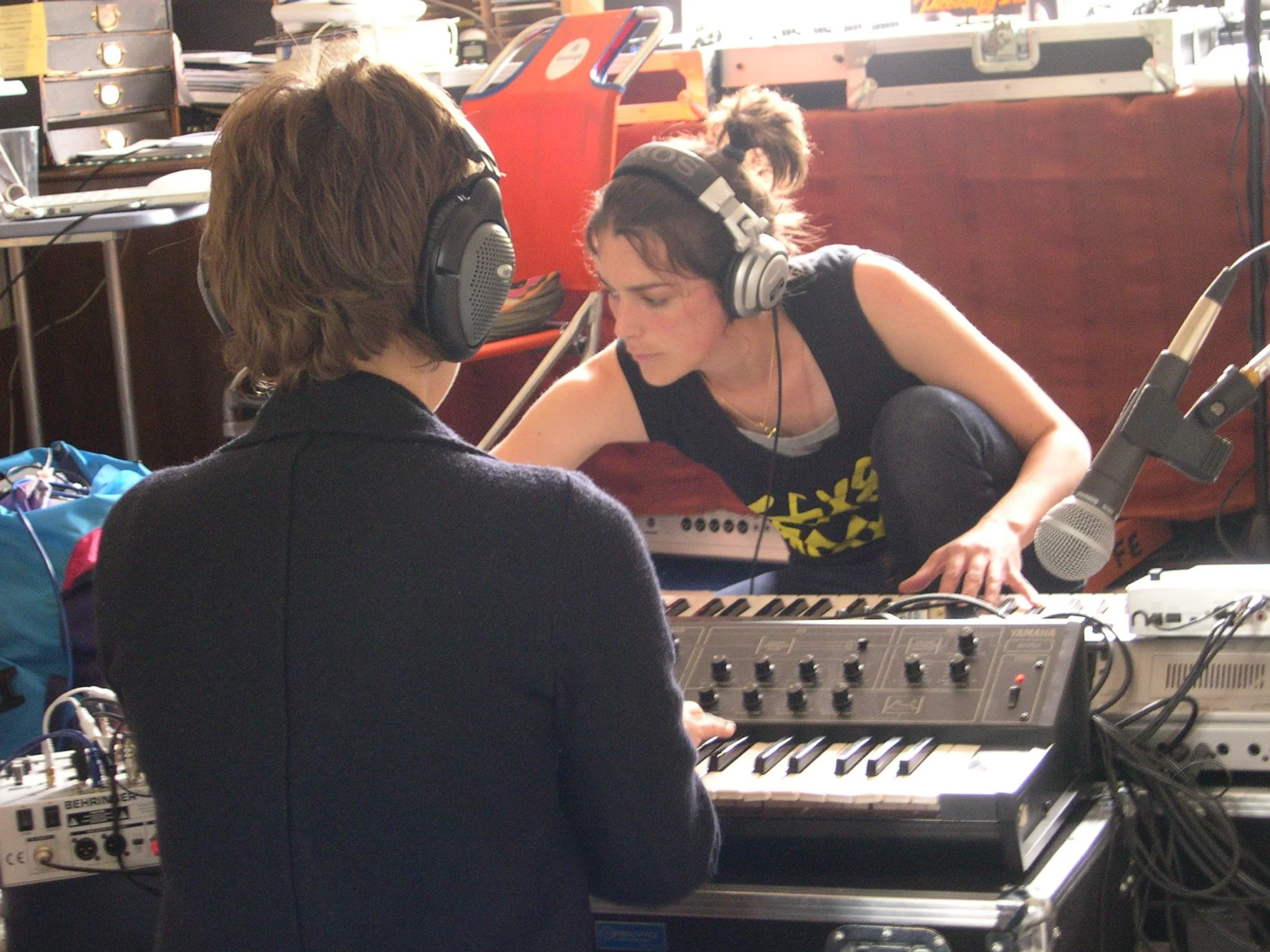
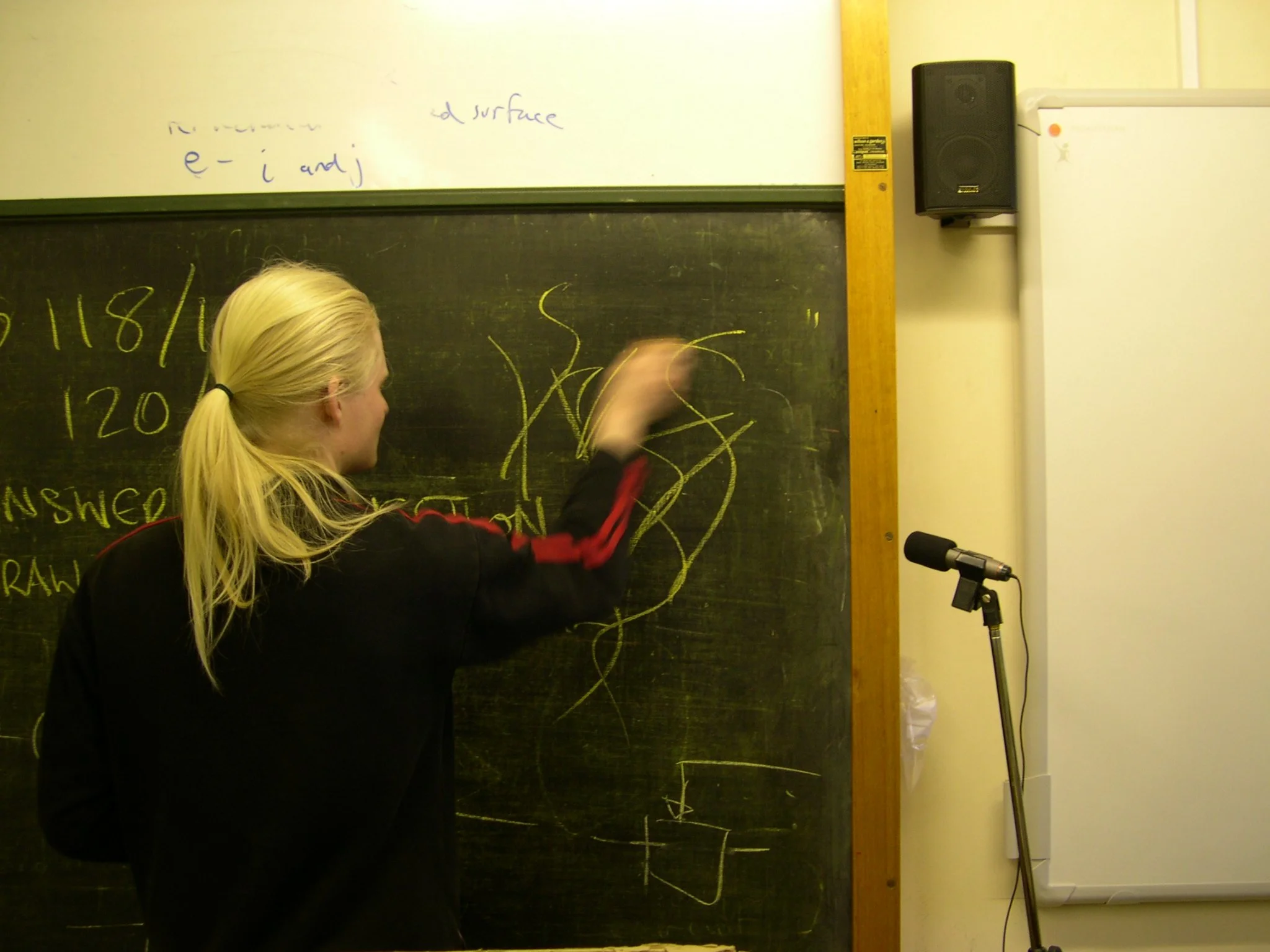

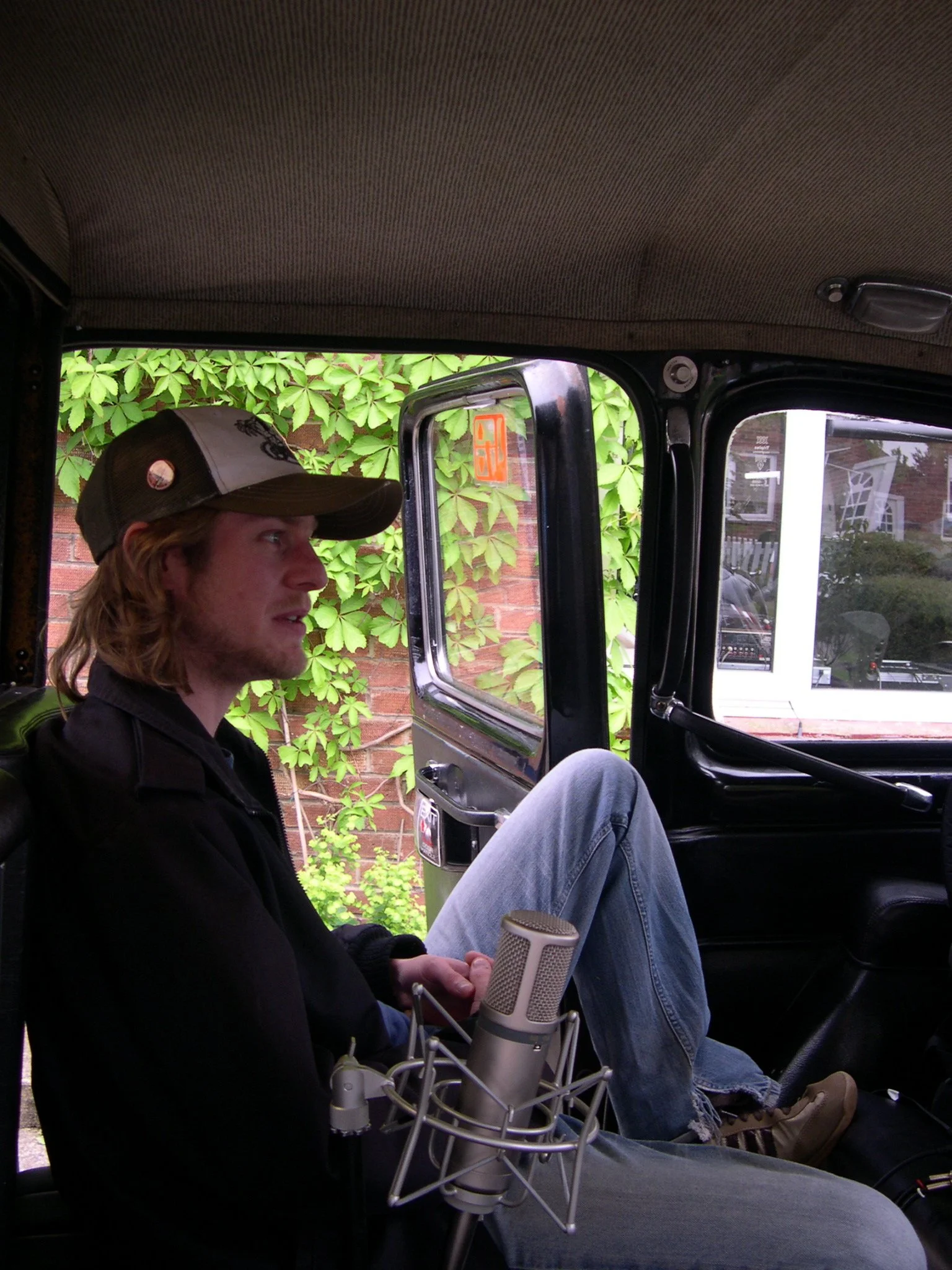

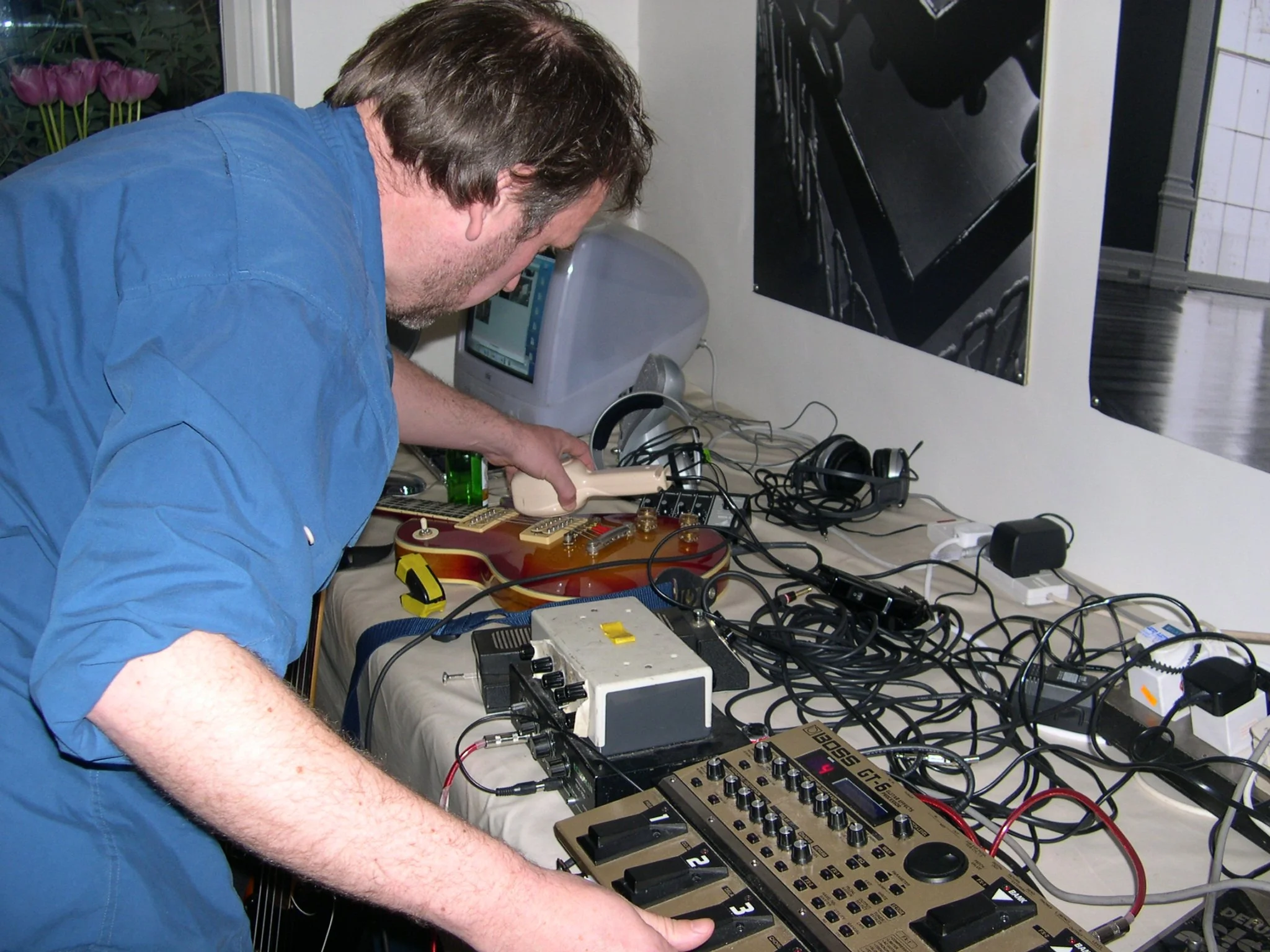
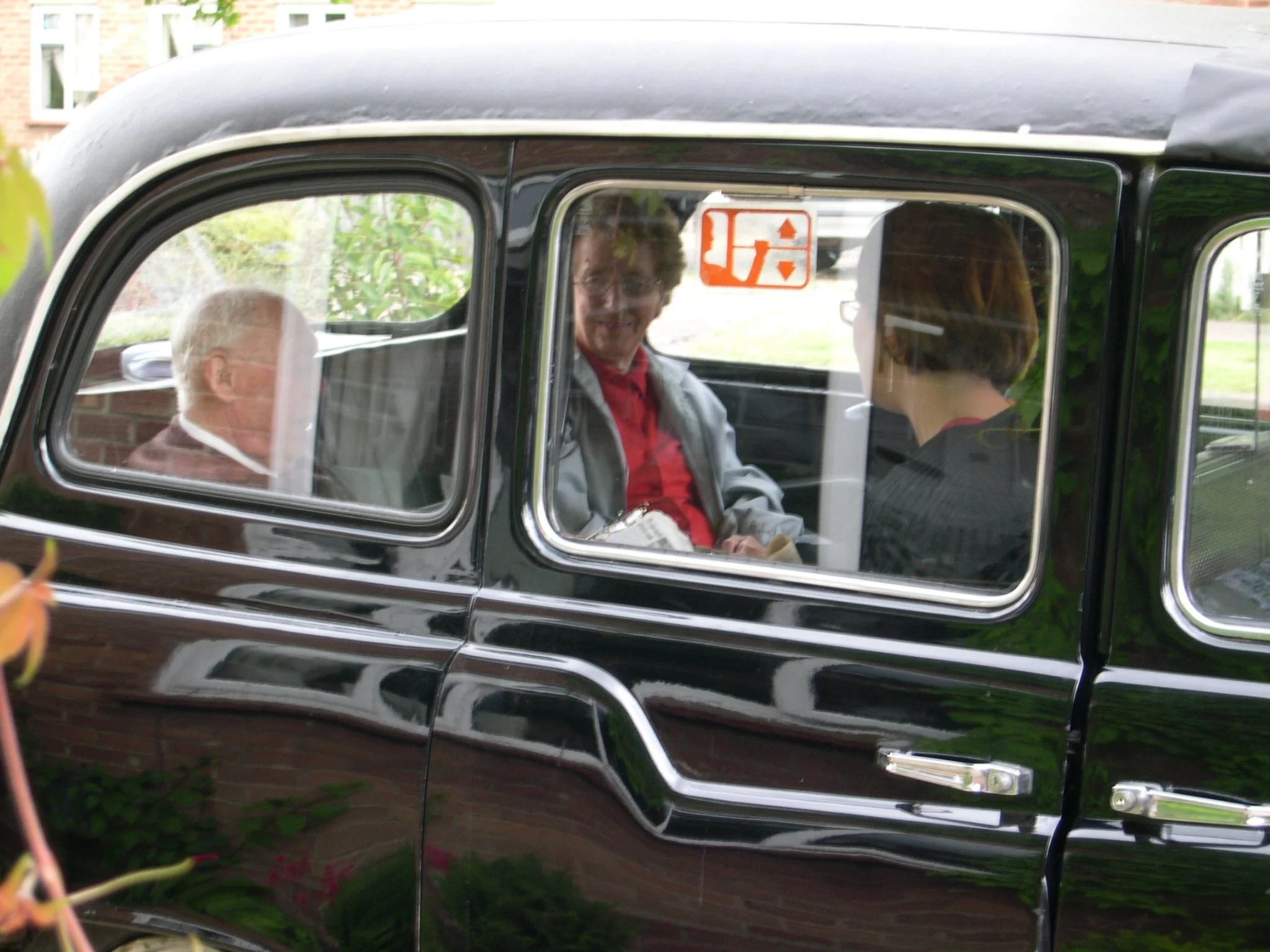
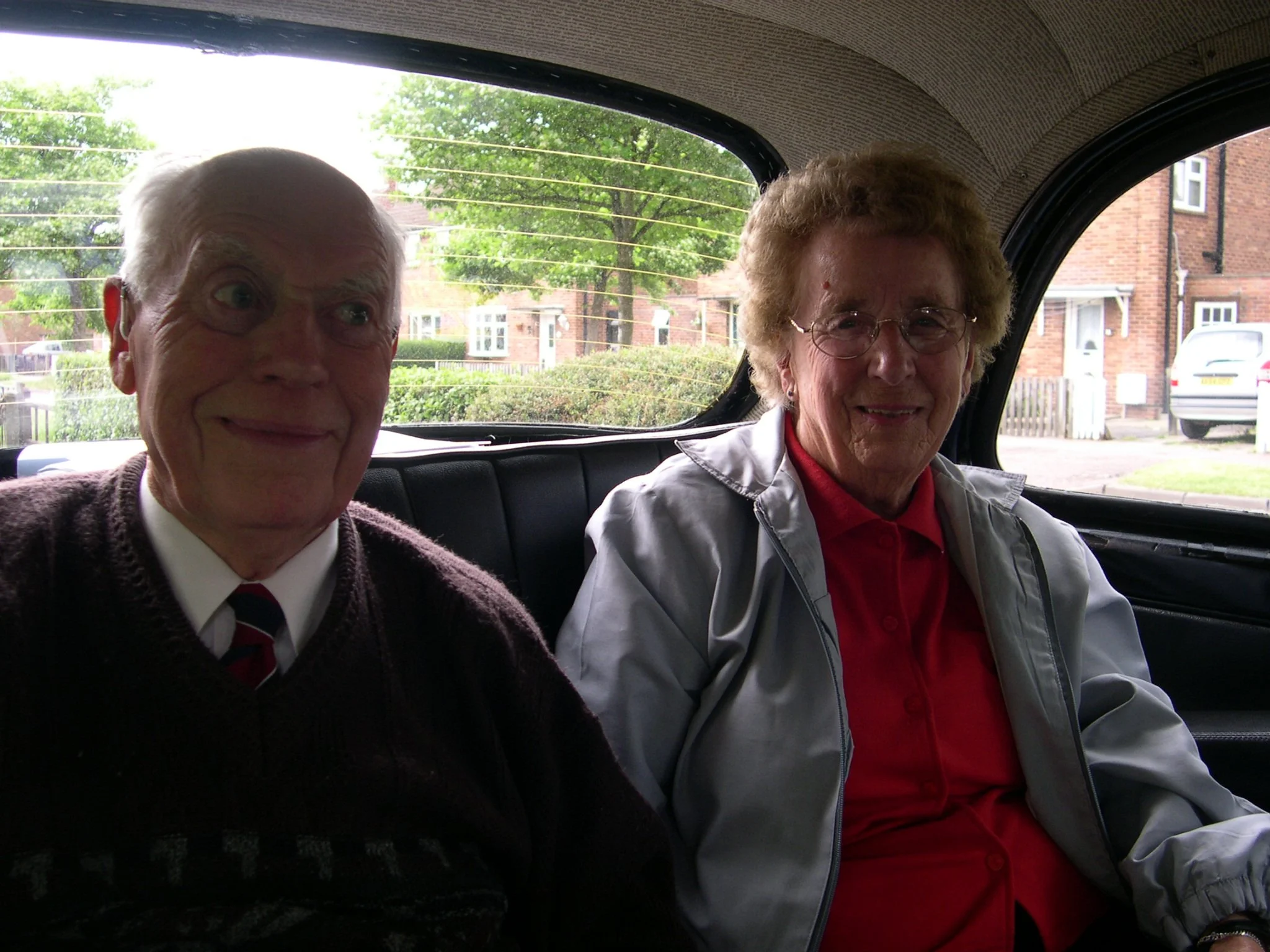
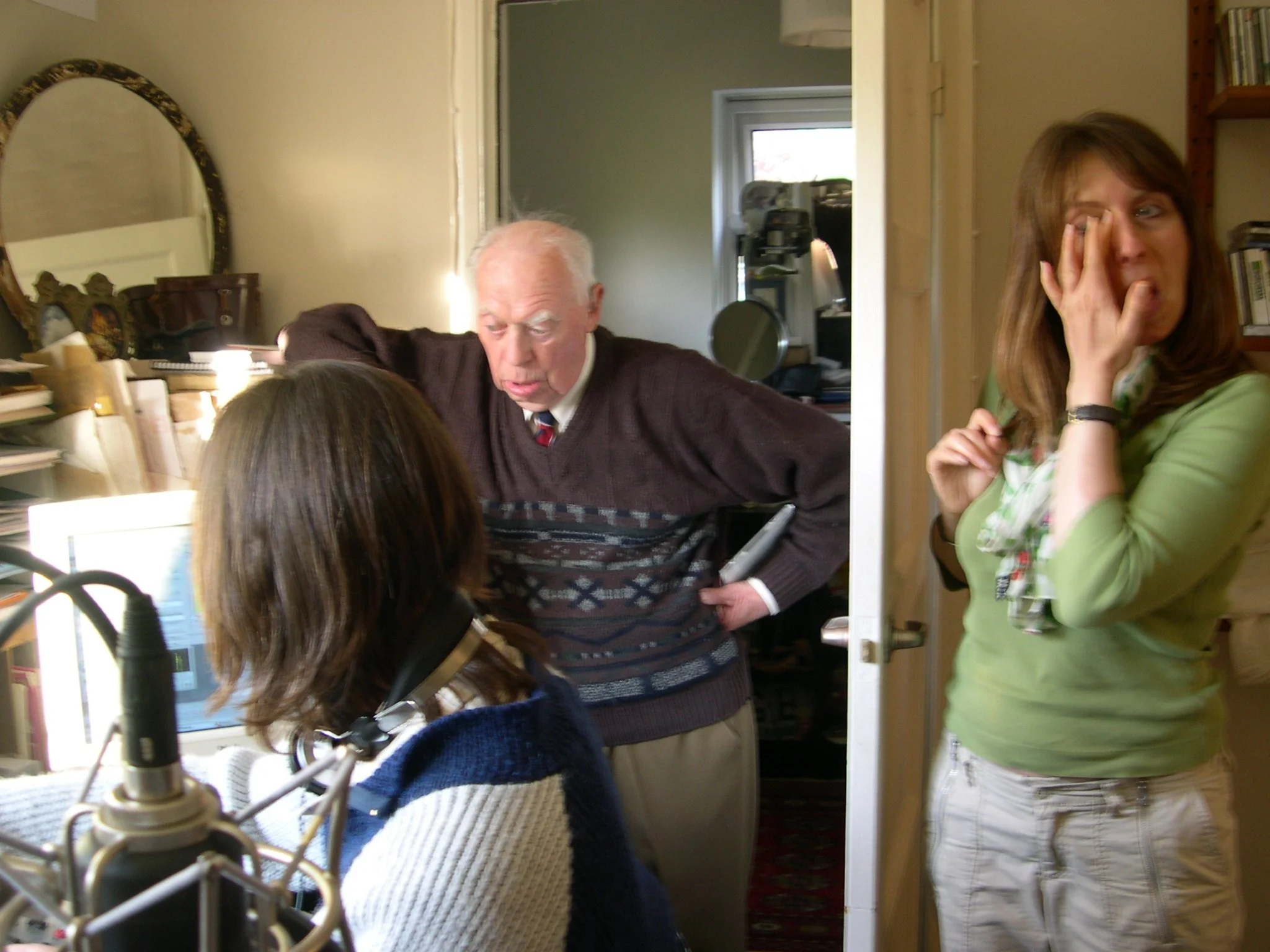
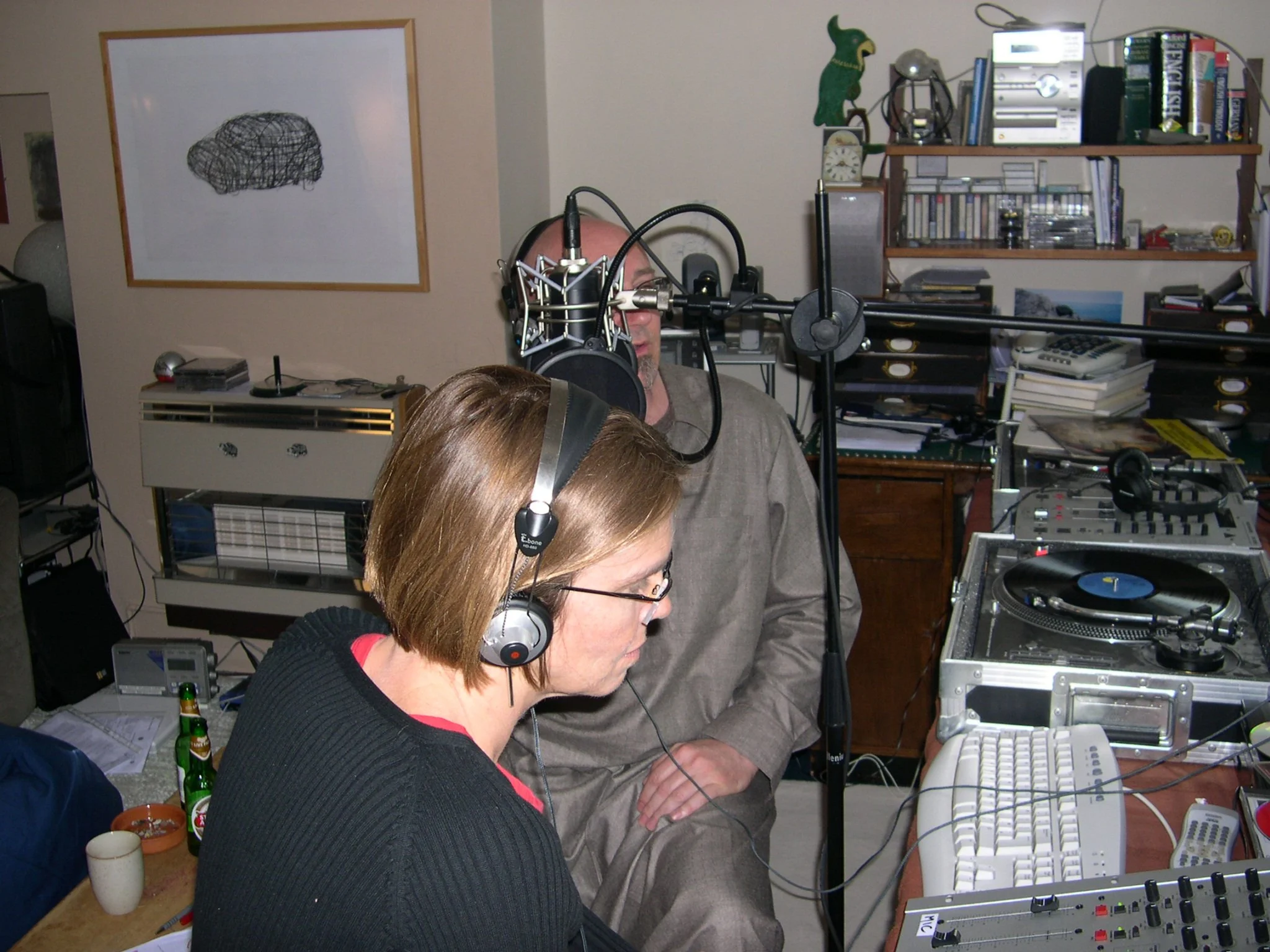
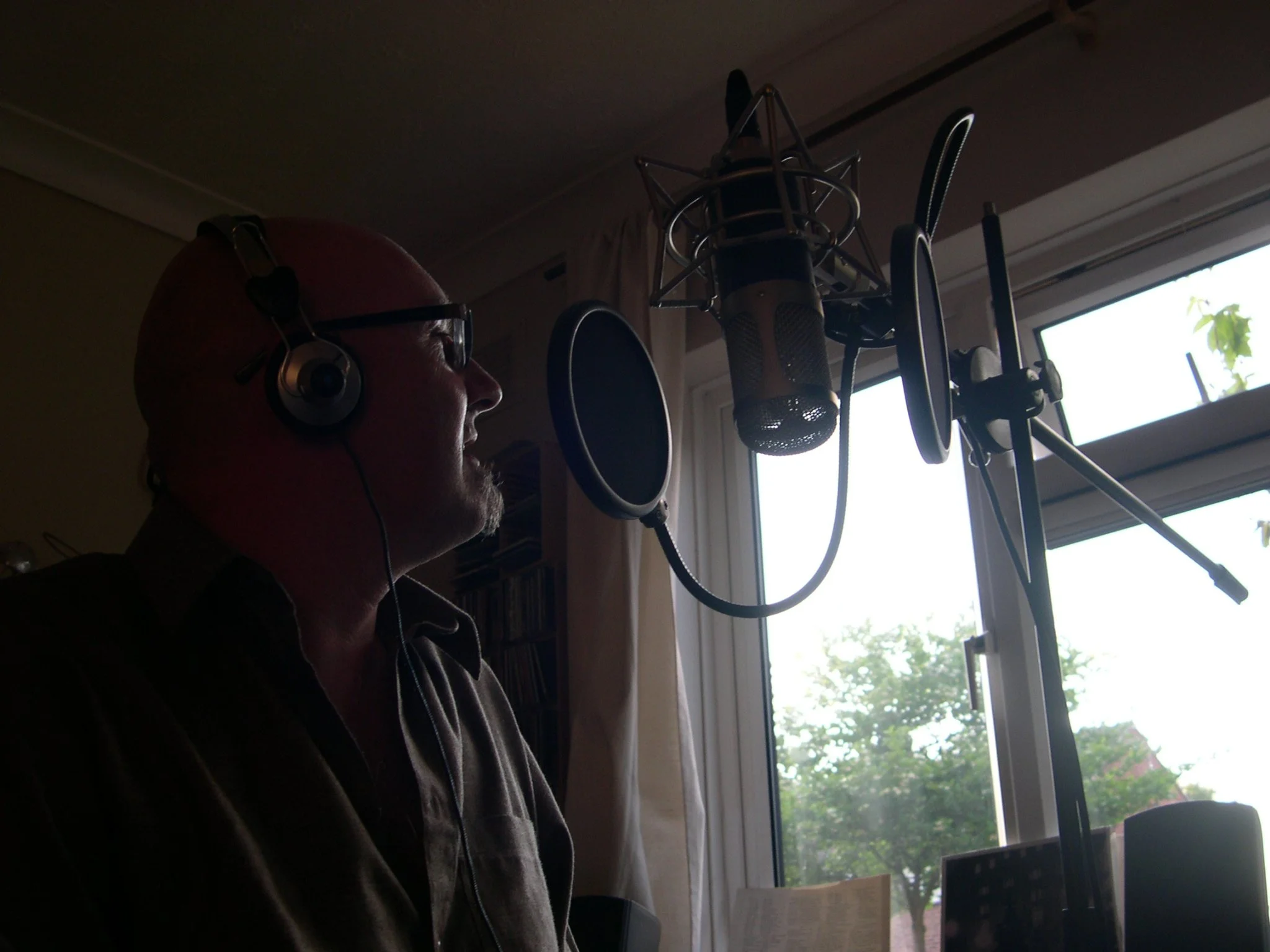
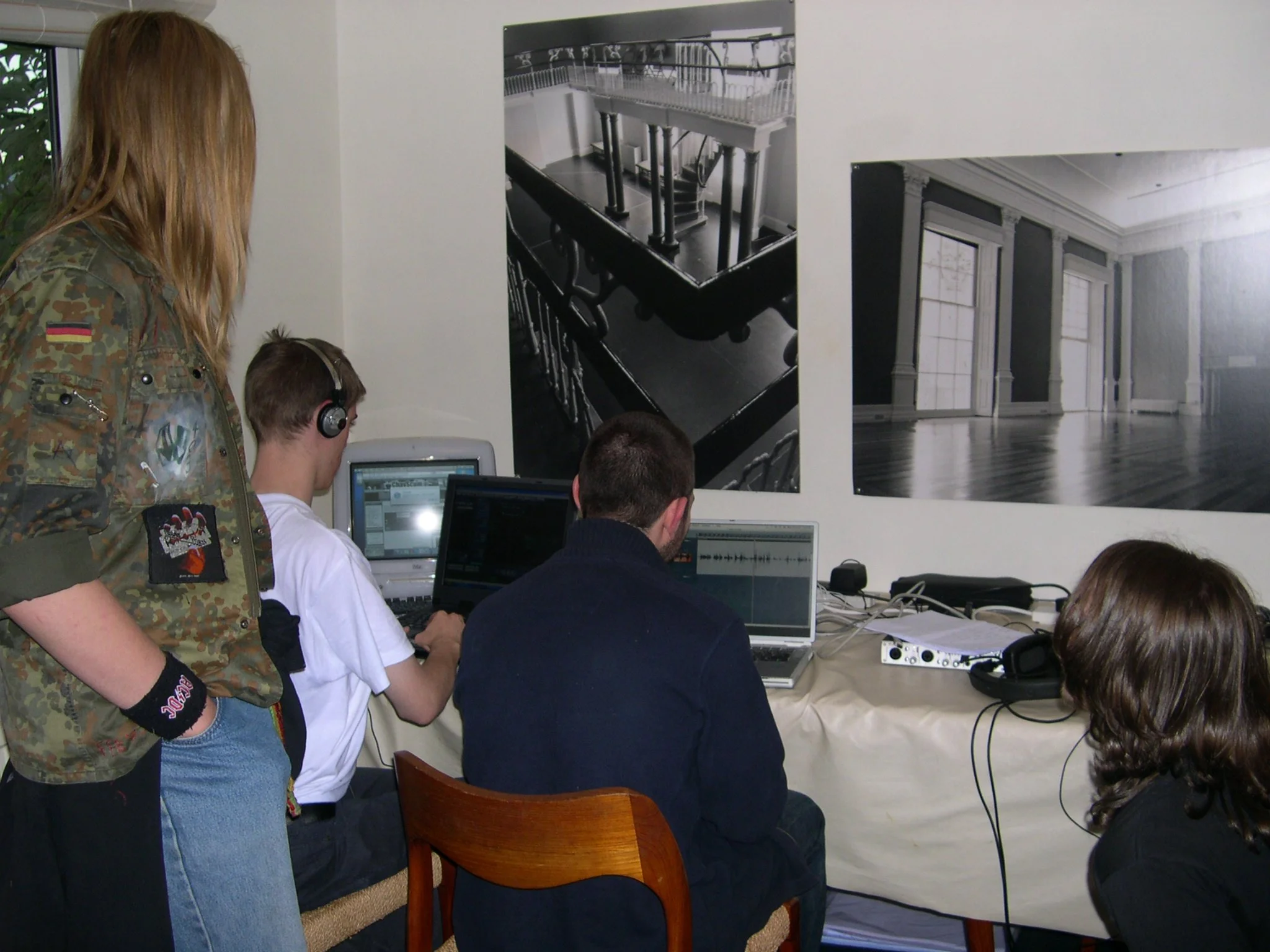
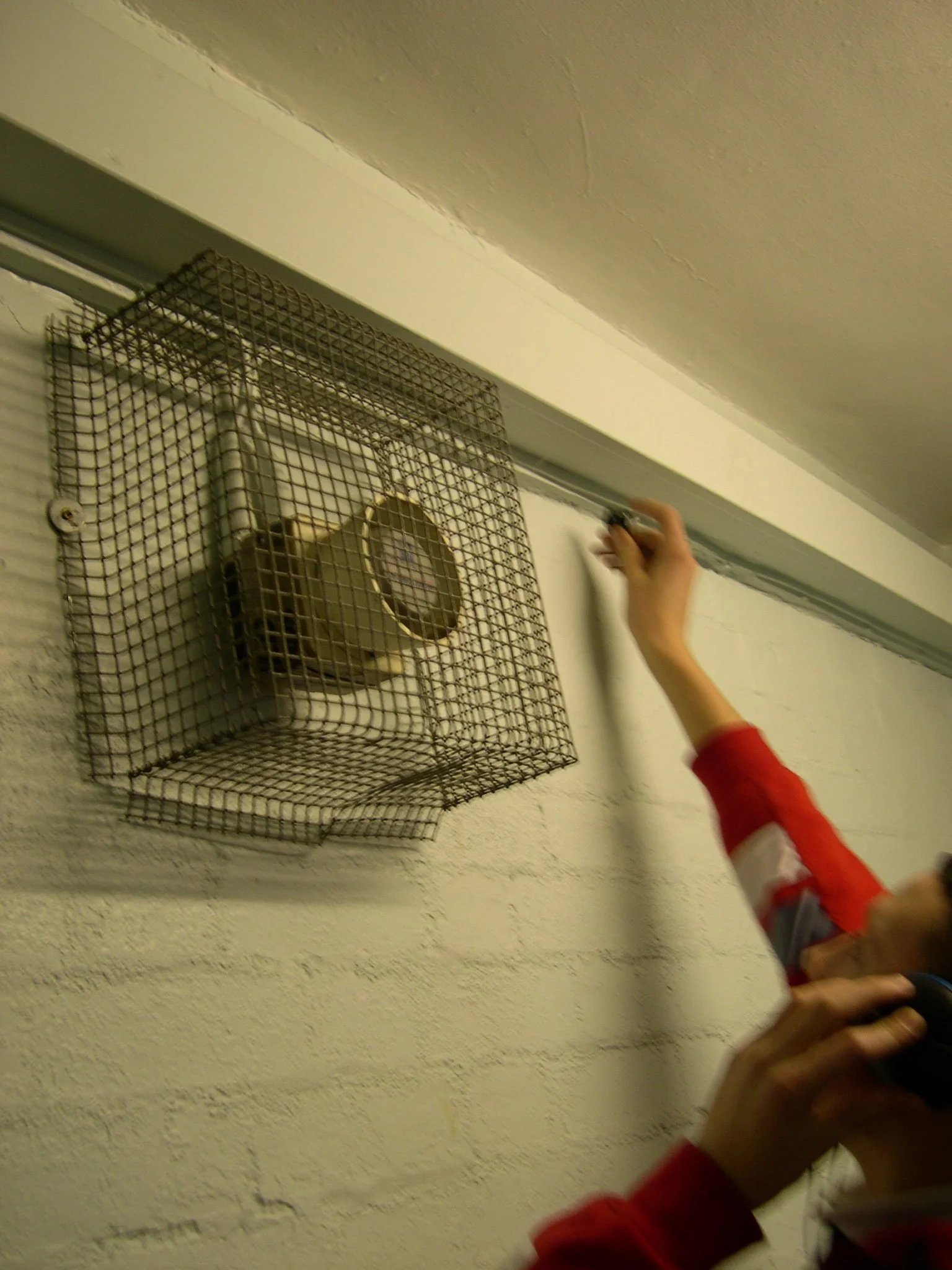
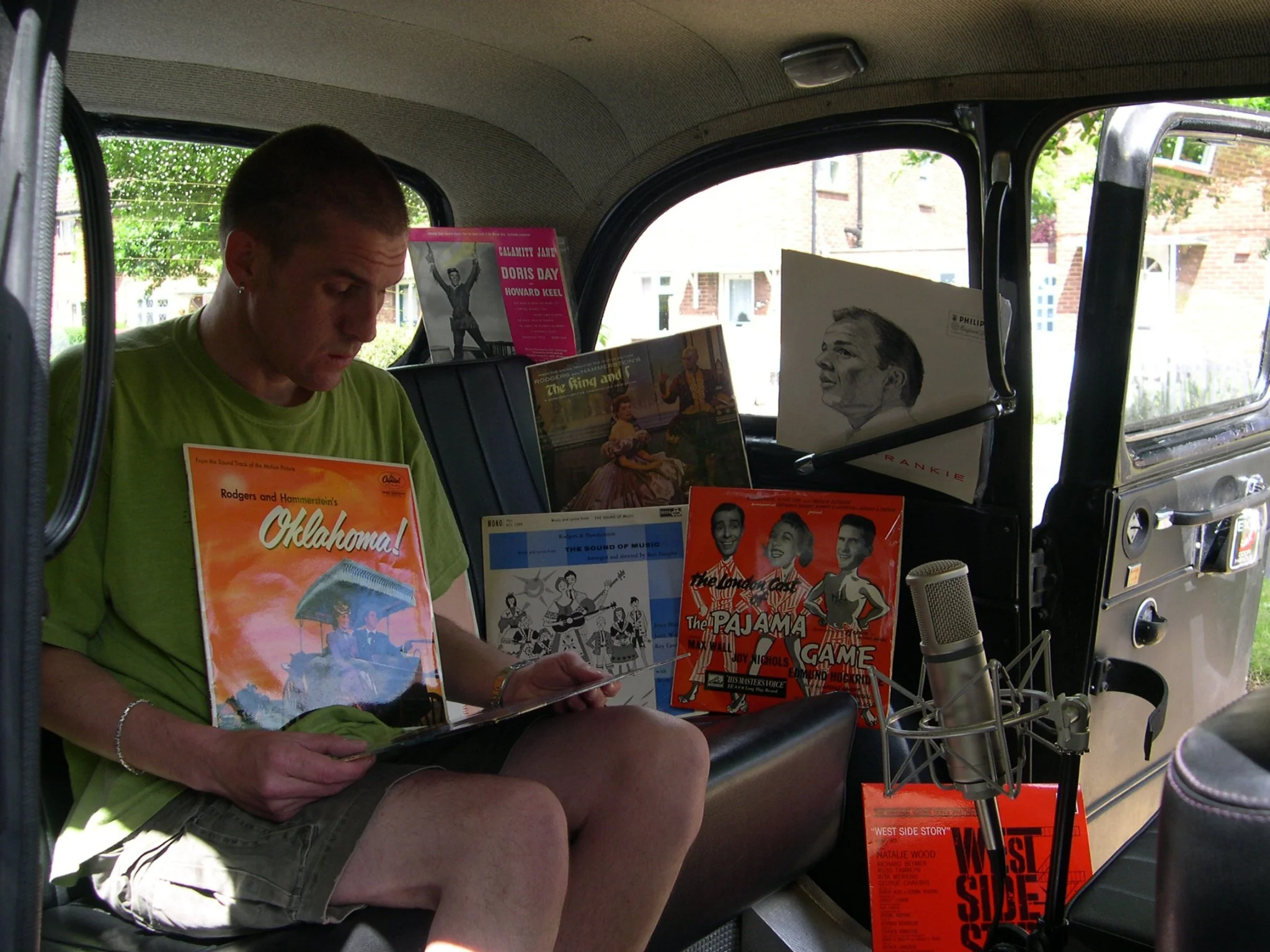
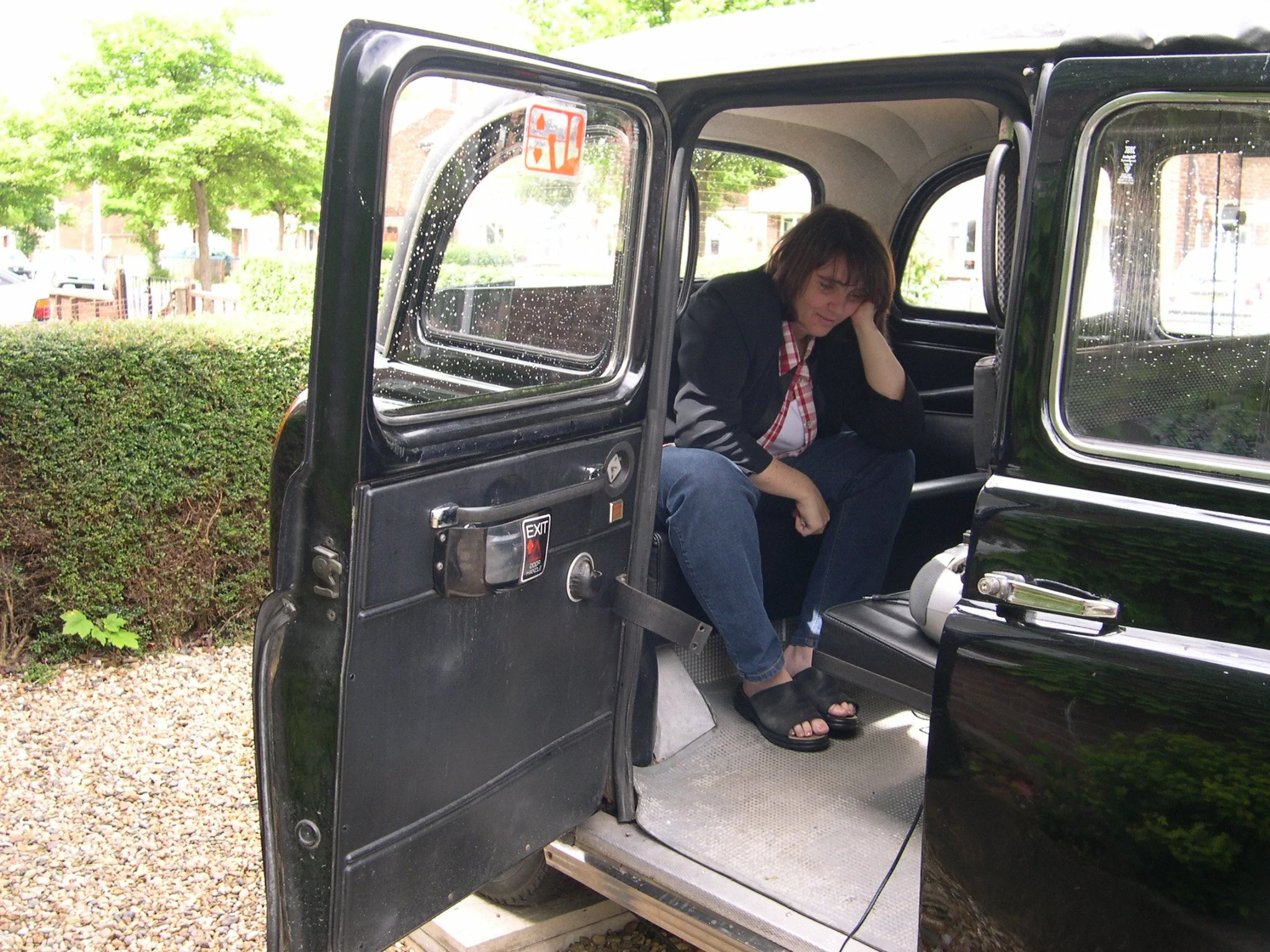
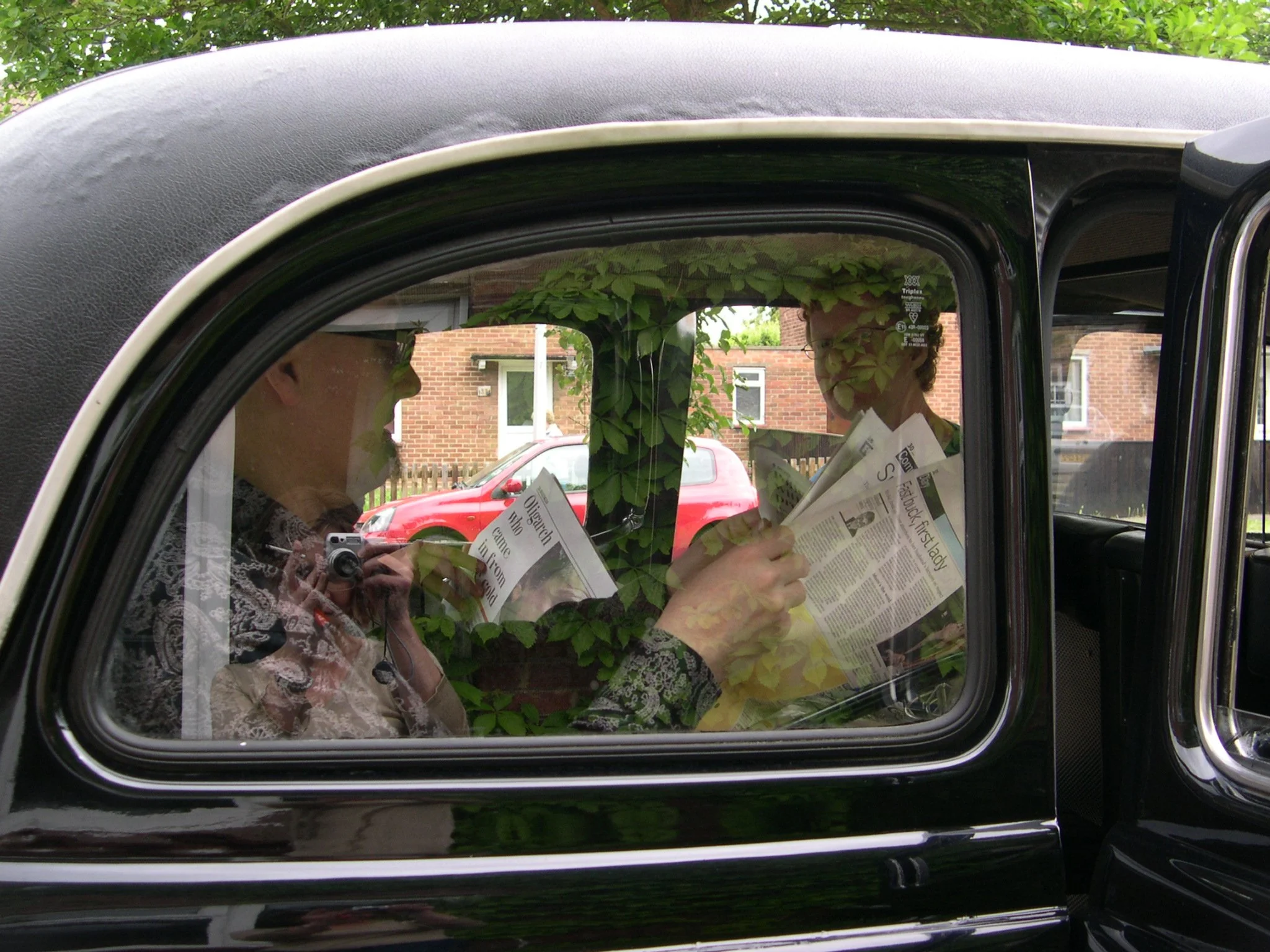
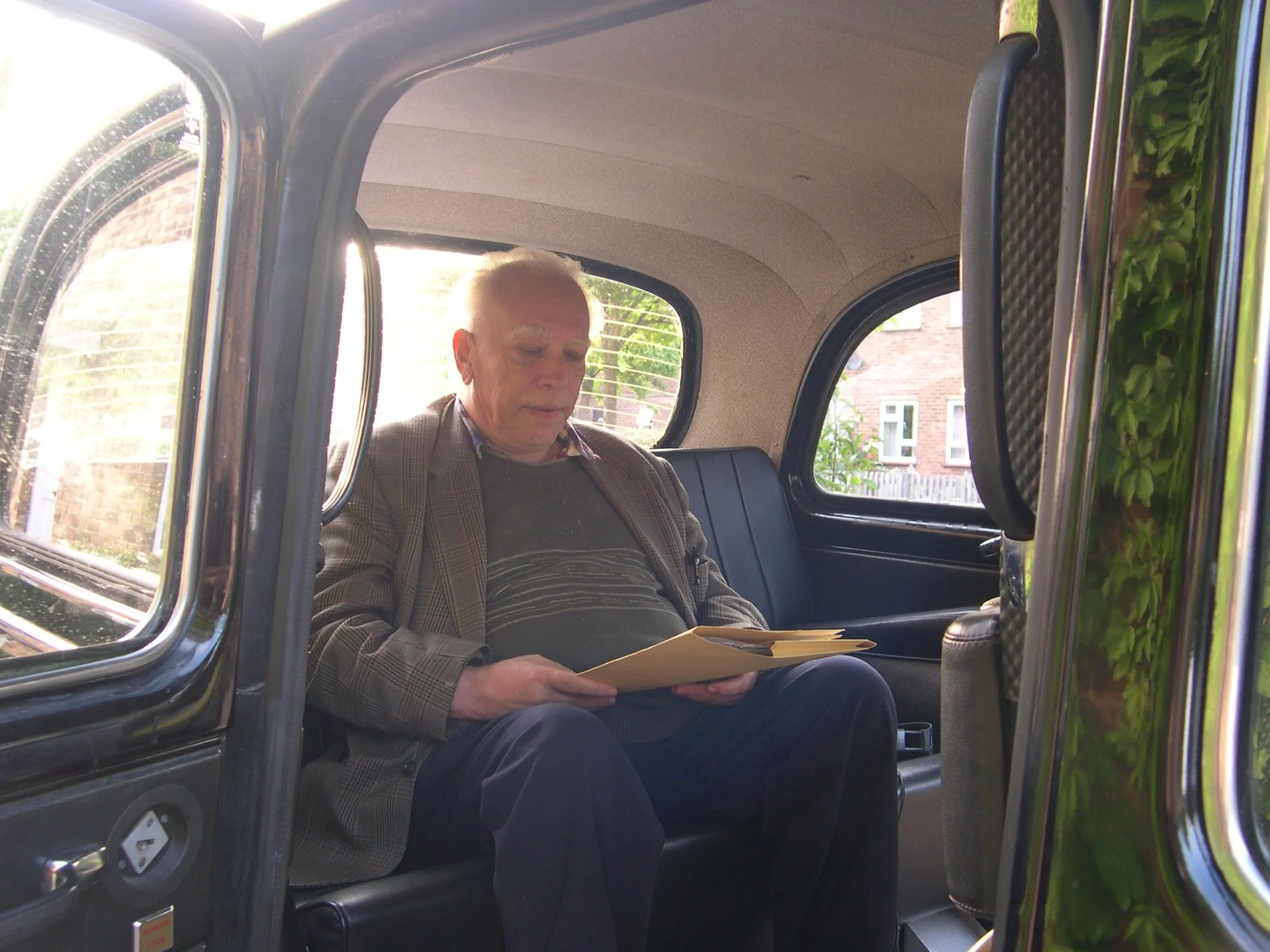
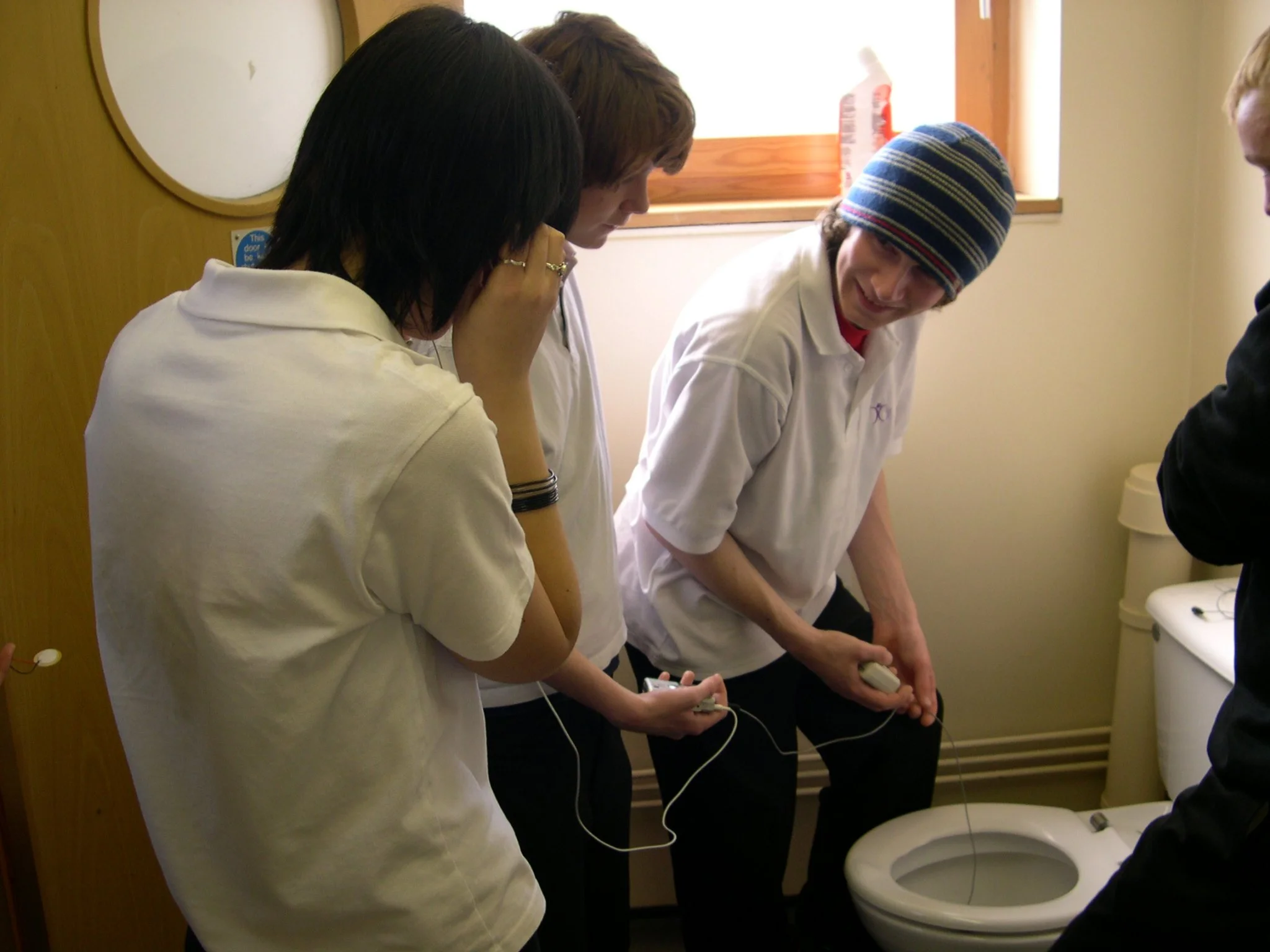
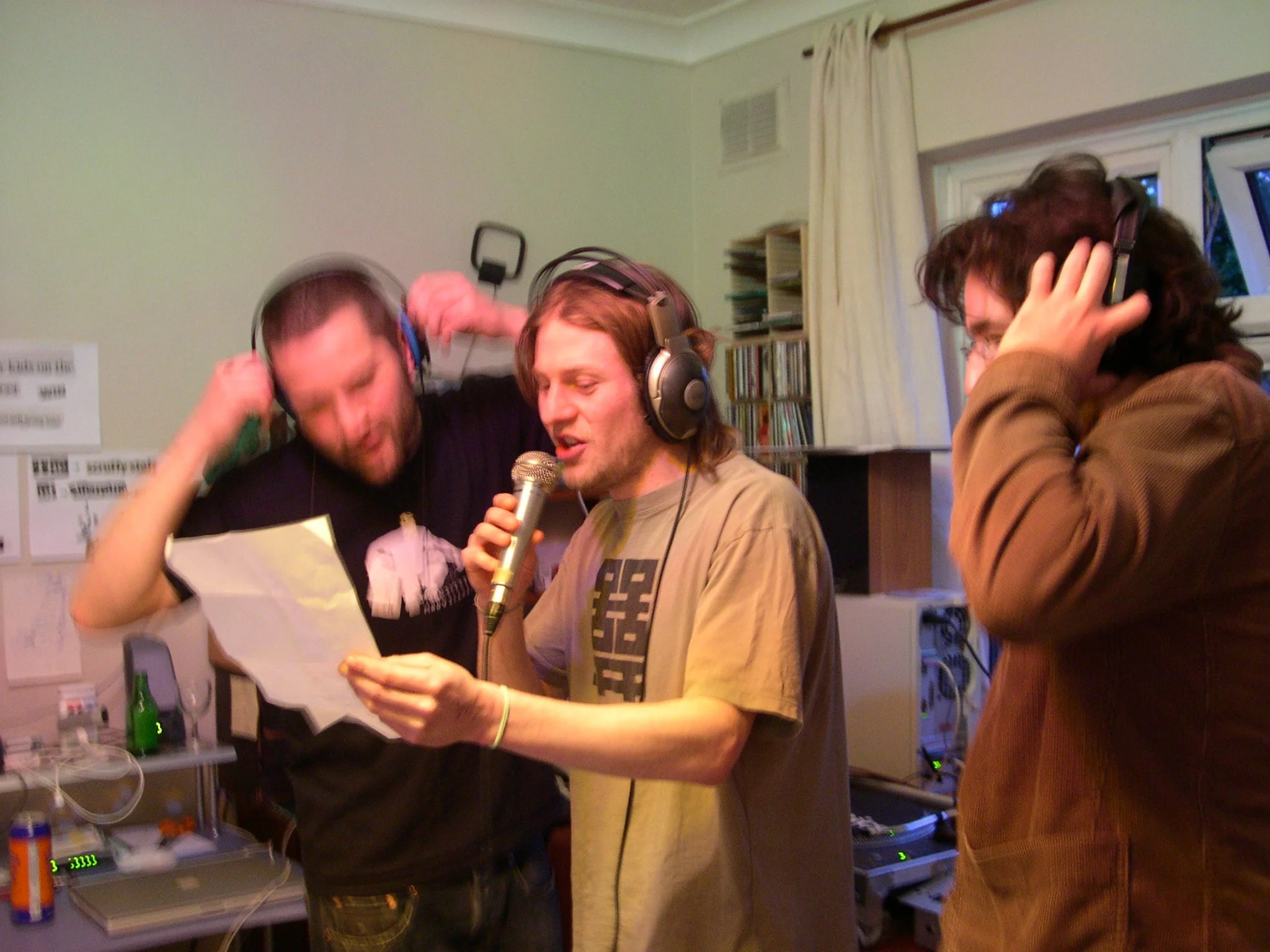
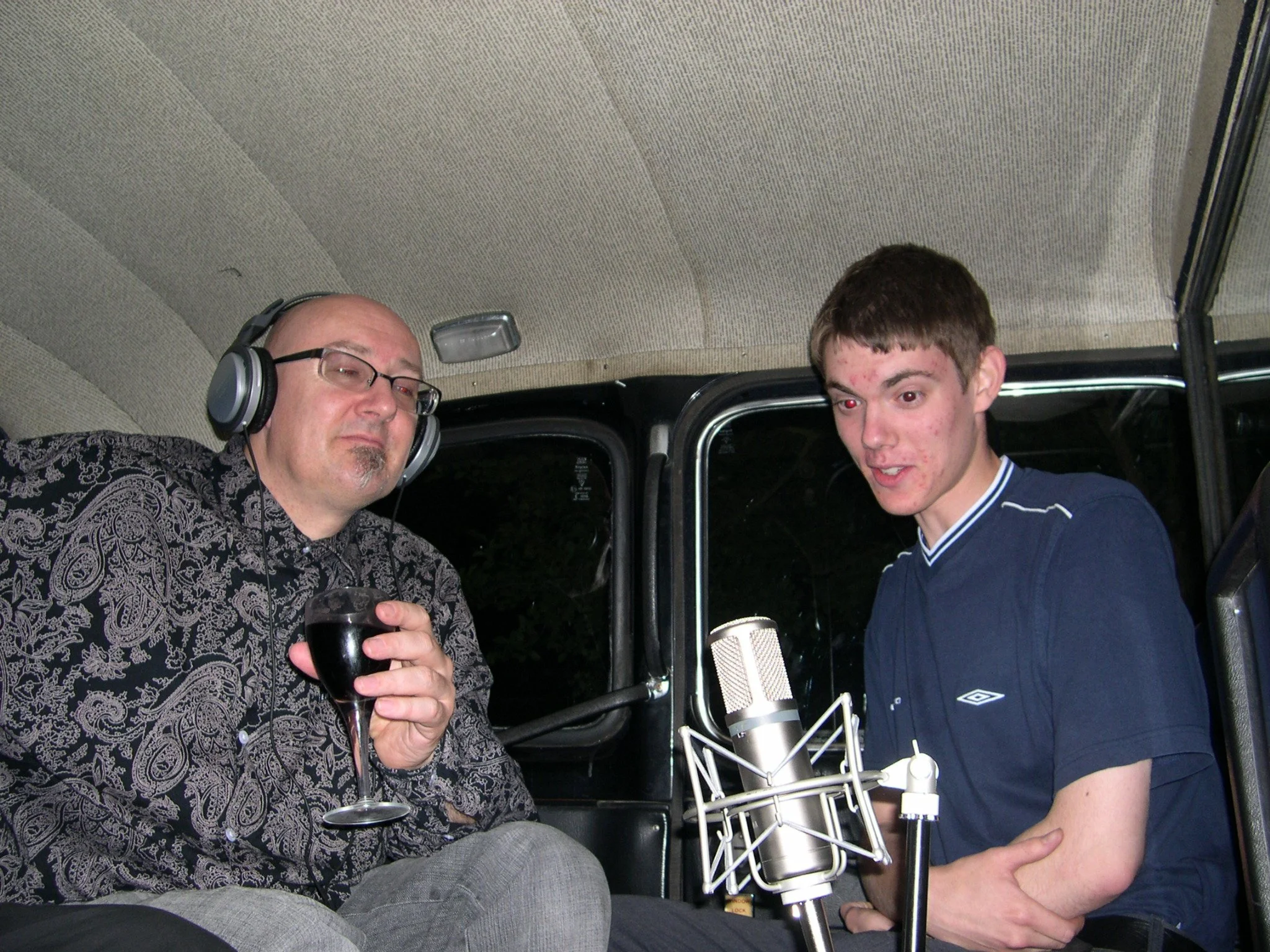
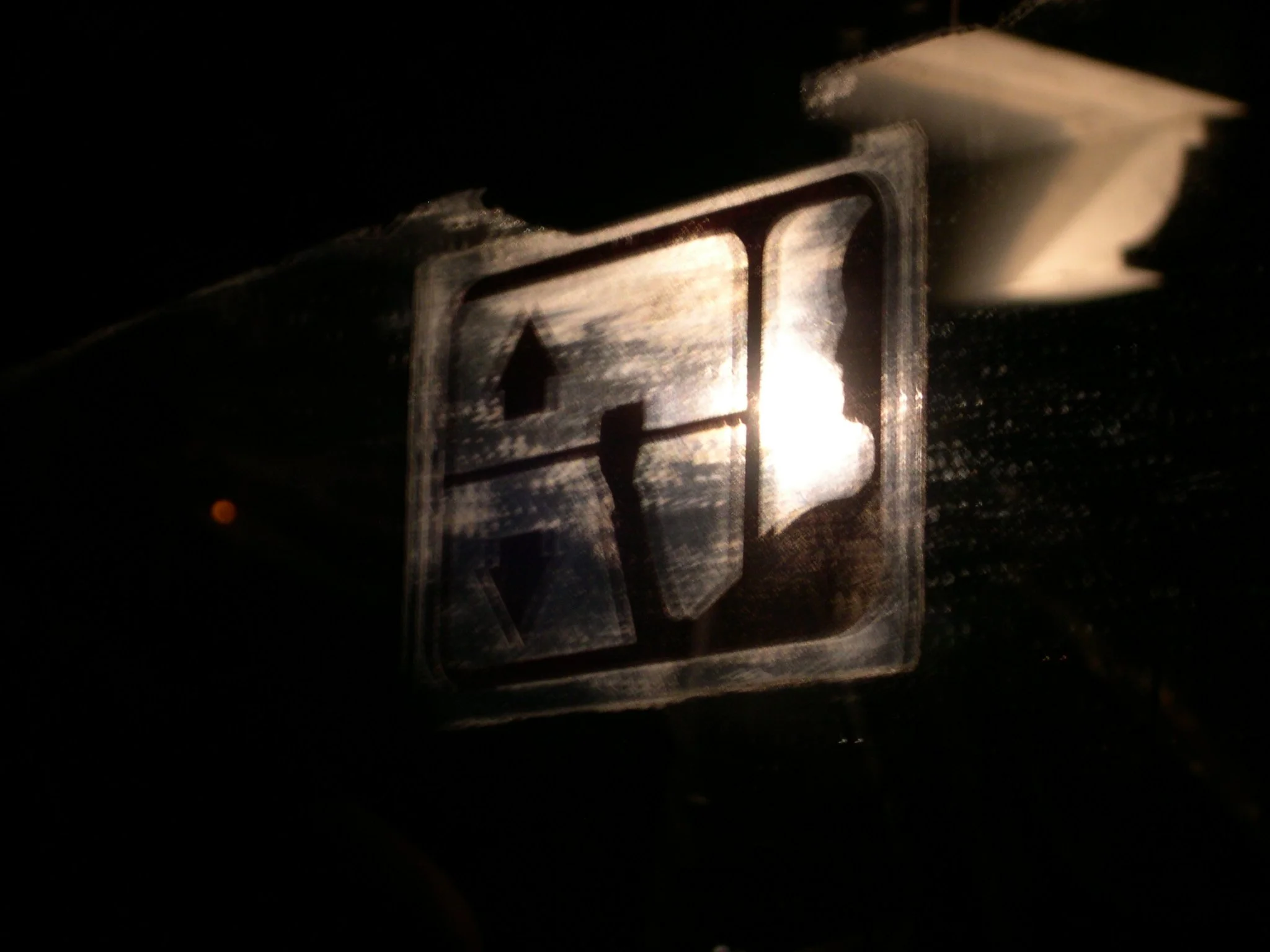
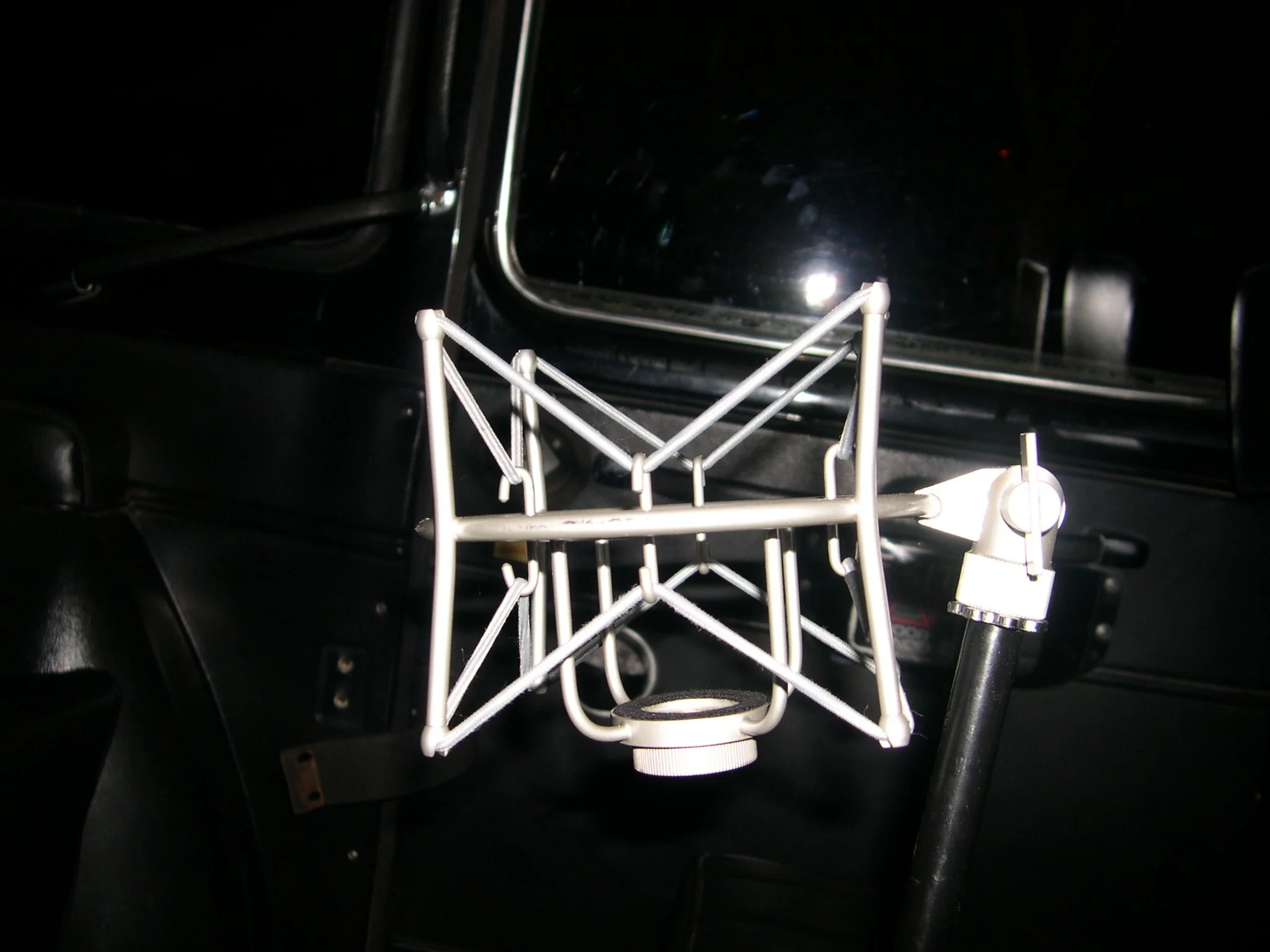
Radio Taxi was an RSL broadcast on 87.7 FM in the Cambridge area and webcast across two weekends at the end of May and beginning of June (6pm 27 May – 6am 31 May (GMT)& 6pm 3 June – Midnight 5 June). Its name was apt, as the broadcast and webcast were delivered from the front room of a semi-detached council house (with the aerial on its roof) outside of which an old London black cab is parked in the front garden. The front room acted as a control room in effect and there was a live microphone in the cab. So the whole operation was visible to streetside passers-by, any of whom could knock on the door, climb in the cab and be put live on air. The station was equipped from the resources of its core team producers, together with 209radio, whose technical know-how was integral to the success of the project.
Planning began on Radio Taxi about one year before output. The Taxi Gallery had by that time been running for two years, and under its curator Kirsten Lavers already put on numerous events and exhibition including projects in local schools - so there was grounding to build upon (see www.taxigallery.org.uk). Coleridge Community College, a school at that time under ‘special measures’ (although they have successfully emerged from that mire) was approached as a possible partner in some aspects of the project and they grasped the opportunity positively. Funding came through Arts Council England East and the Lottery Awards for All Fund.
From the outset the aim was to be local-translocal. To bring local programming alongside submissions from elsewhere; to examine communities of listening through local stories and histories but also through sound art, field recordings and recordings of actual taxi journeys. Work got under way in earnest in January 2005 with the recording of several major projects devised with Coleridge Community College and a widely circulated call for submissions from sound artists worldwide. The ‘call’ was framed to create conversations around and focus attention onto a web of key themes: everyday, transition, neighborhood - conversation - the commons - collection, transmission
A Radio Club involving particularly keen students of Coleridge Community College ran on a weekly basis from April, with 10 members, 8 of whom went on to play a major part in the broadcasts. This included hands-on experience of creating i-dents, short sound pieces, vox-pops, taking part in live discussions and increasingly doing some presenting.
By early May about 60 works had arrived in the post from diverse locations worldwide (Poland, Israel, Australia, USA, Canada, Mexico, India, Lebanon . . .) but also from around the UK. Most were targeted to the themes and few were rejected, but everything was listened to and notes made as to possible places in an emergent schedule.
So, with a growing bag full of ‘programmes’ the exoskeleton of a schedule emerged. But rather than tying everything down into formats and time-slots the aim was to make Radio Taxi flexible and responsive - to keep it live. In any case works for broadcast rarely fitted into neat time-slots and were far the better for being the length they needed to be rather than simply fleshing out uniform time slots.
There was a lot of mounting excitement when the aerial went up on the roof of the house and we could finally try some test broadcasts and know that the web stream was working for all platforms. Then it launched. A steepish learning curve was negotiated to get as many up to speed on the basics of operating a station as necessary. Radio Taxi had a core team of five for its main broadcast, with a hostess-of-the-mostest and the Radio Club members on hand to provide invaluable support. The presenting style was not in-your- face and pushy but soft and encouraging. There was a continual insistence that anybody could come and get involved, take part, make the radio space their own - by simply stopping by and playing their favourite track (we insisted on non-chart and the reciprocity of providing the intro before the track was played). We got e-mails and phone calls and remixed attachments. We did get local residents dropping by for reminiscence chats and simply to see the transformation of the house and yes to introduce their favorite sounds. One brought a tape of a frog in his garden (inspired by some of the field recordings and because he had started to listen to the sounds around him with a renewed freshness) and we mixed it with recordings of frogs in California and the Bahamas (they just happened to be in the core group’s own archival tapes).
A worker on summer employment from Poland, driving the local ice-cream van drove past on the first evening, spotting the commercial opportunity offered by a hubbub of excited people celebrating the launch of the station. Returning the next day he was encouraged into the house to introduce himself (which he duly did in Polish - Cambridge has a growing Polish community). Invited back the following day he brought some bad boy Polish rap which was aired with much hilarity.
So the house became a station of many arrivals and departures. On the first Sunday, between 4-11pm it hosted seven (yes, seven) live electronic music acts that stretched Karl Hartland’s exemplary tech support close to (but only close to) breaking point. Computers were balanced on makeshift surfaces, wires trailed in and out of and around and through the house, at one stage almost the entire ground floor was covered with instruments, and one sound composer performed live from the back seat of the taxi itself.
An ongoing highlight was the series entitled ‘A Listening Life’, borrowed from the Radio 4 Desert Island Discs format but with 7-9 tracks played in full and with sometimes lengthy stories gluing them together into a fascinating patchwork of life narratives. Thirteen of these were produced in all. Most were about an hour long but three pushed twice that length, providing substantial programming infrastructure.
Another group of programmes emerged directly from the college, The school mag club produced projects on girls and computer gaming, on downloading, on an animal sanctuary, on local rock music, on comic book movie adaptations compiled with real journalistic flair, energy and passion for their subjects. The school itself became an instrument as sound artist Simon Keep worked with several pupils to record the inner and surface workings of the entire place with the use of electromagnetic microphones.
As appropriate for the college’s namesake the Radio Taxi team made an extraordinary recording of Samuel Taylor Coleridge’s The Rime of the Ancient Mariner - a sound portrait of the entire school voiced by pupils, teachers and support staff, with each person saying a line. As you can imagine what with double takes of each line and 625 lines in this hugely influential gothic narrative the subsequent editing and soundscaping task was a labor of some love. Finally, through the ongoing commitment of the Head of English (big up Martin Campbell) a poem about neighborhood was devised, written and recorded in seventeen languages, conveying a poly-linguistic reality not too often accorded to Cambridge but genuinely reflecting the college’s cultural richesse.
Due to its small core team there had to be a contingency to deal with sleeping. Inspired by the Jim Jarmusch movie A Night on Earth (perhaps the ultimate taxi movie) there was a night on earth programme of field recordings (mostly submitted by those who were committed to the vision - or sound - of Radio Taxi but who lived elsewhere). Consequently those listening in other time zones could relish taxi journeys through New Delhi and Warsaw, one hour of a park at night in Montreal, a rainstorm in Brisbane, a binaural recording of the M23, a walk through Cambridge at midnight and many other evocative soundscapes including an utterly seductive dawn DJ mix to wake up to.
Other works broadcast over the weekend included audio works from Taxi Gallery’s back catalogue of exhibitions:
We received many encouraging phone-calls and emails and since the broadcast people have commented on how disappointing their radio listening now feels after the Radio Taxi experience. This is just one such email:
Just a note to say what a fantastic weekend it was having Radio Taxi on as much of the time as possible! We had it on in the garden, the loft, the bedroom, the kitchen and the car at various times of the weekend, trying hard not to miss anything!! I even had it on at a friend's party!
What was amazing, was that the radio felt like having people here, talking about their lives, both in the Listening Life and Neighbourhood slots, playing music and just chatting about things that are important to them. There was a real sense of connection - with the students from Coleridge, with the people who were talking about their lives and the community. I was excited about the fact that people could just think of something they
wanted to say and there was an opportunity to do that, or just to play their favourite track. The sun was shining, there was a sense of being really alive and part of something positive, really creative, exciting and fun. It challenged commercialism, individualism, isolation and a culture that says you are nothing unless you are young and famous!
Today I walked back from town instead of cycling as I would normally do, and it took an hour along the river. I spent time listening and looking at details that I have cycled past many times and it has inspired me to slow down a bit and pay attention to details.
This is a quote that I love.
“Go into any place where history is stored and listen. Hold your breath. Hear how still it is. Librarians and archivists will keep their visitors quiet, but this particular silence has nothing to do with them. It runs through buzzing computer rooms and waits in busy record offices, it is always there. It is the sound of nothingness. It is the huge, invisible, silent roar of all the people who are too small to record. They disappear and leave the past inhabited only by murderers and prodigies and saints.”
Radio Taxi has stopped some of these people’s voices disappearing.
I will NEVER FORGET the weekend; it was one of the all time greats!
So, it was with a sad heart, but good cheer and great memories that Radio Taxi closed down its transmission at midnight on June 5th with the assembled team gathered in the Taxi around the microphone whispering – goodbye and goodnight.
Kirsten Lavers, cris cheek, Simon Keep
June 2005